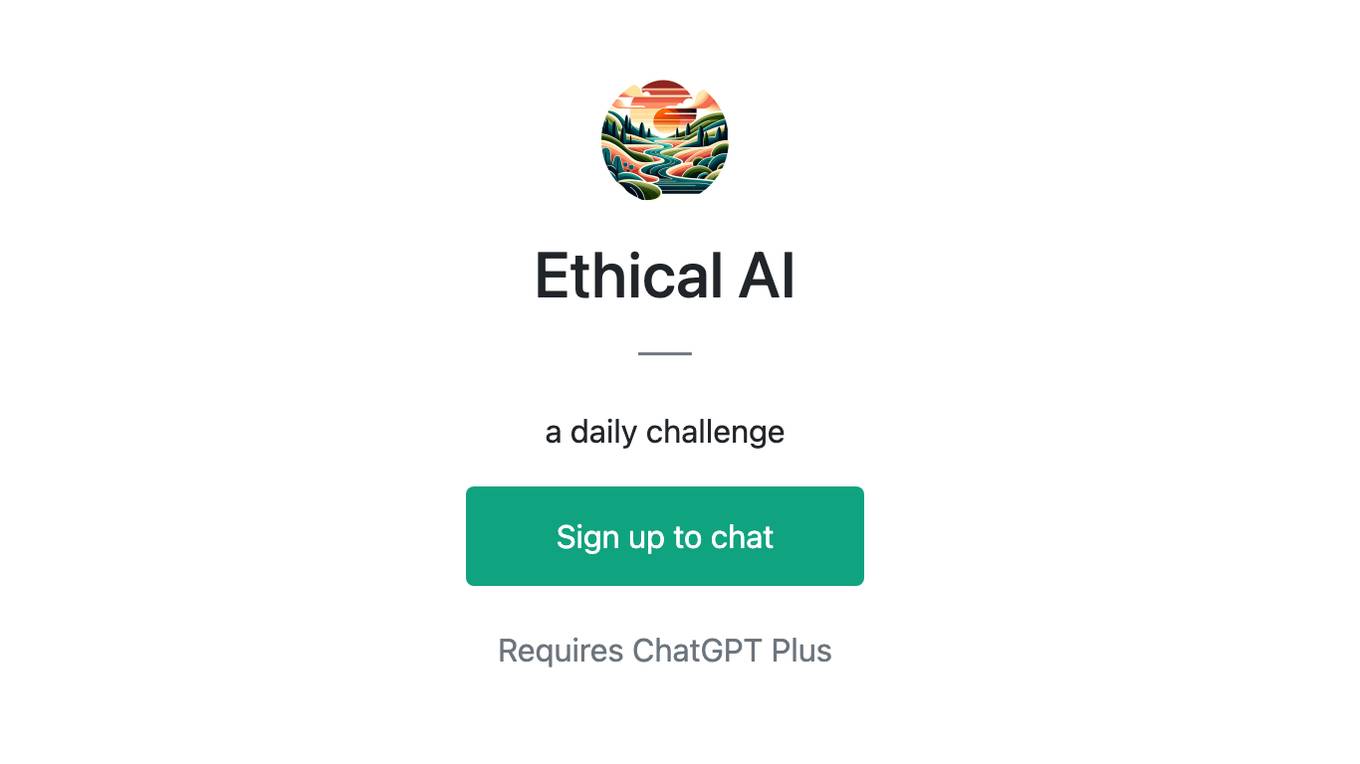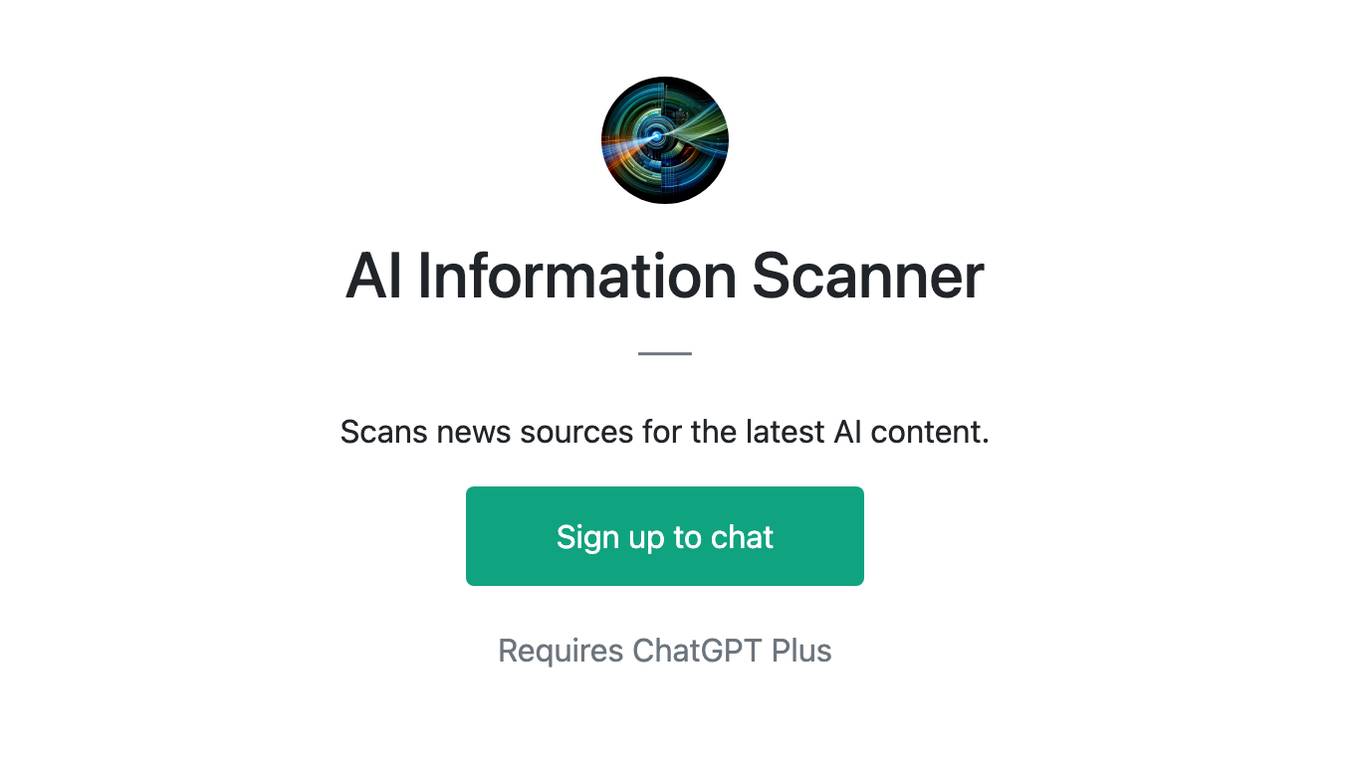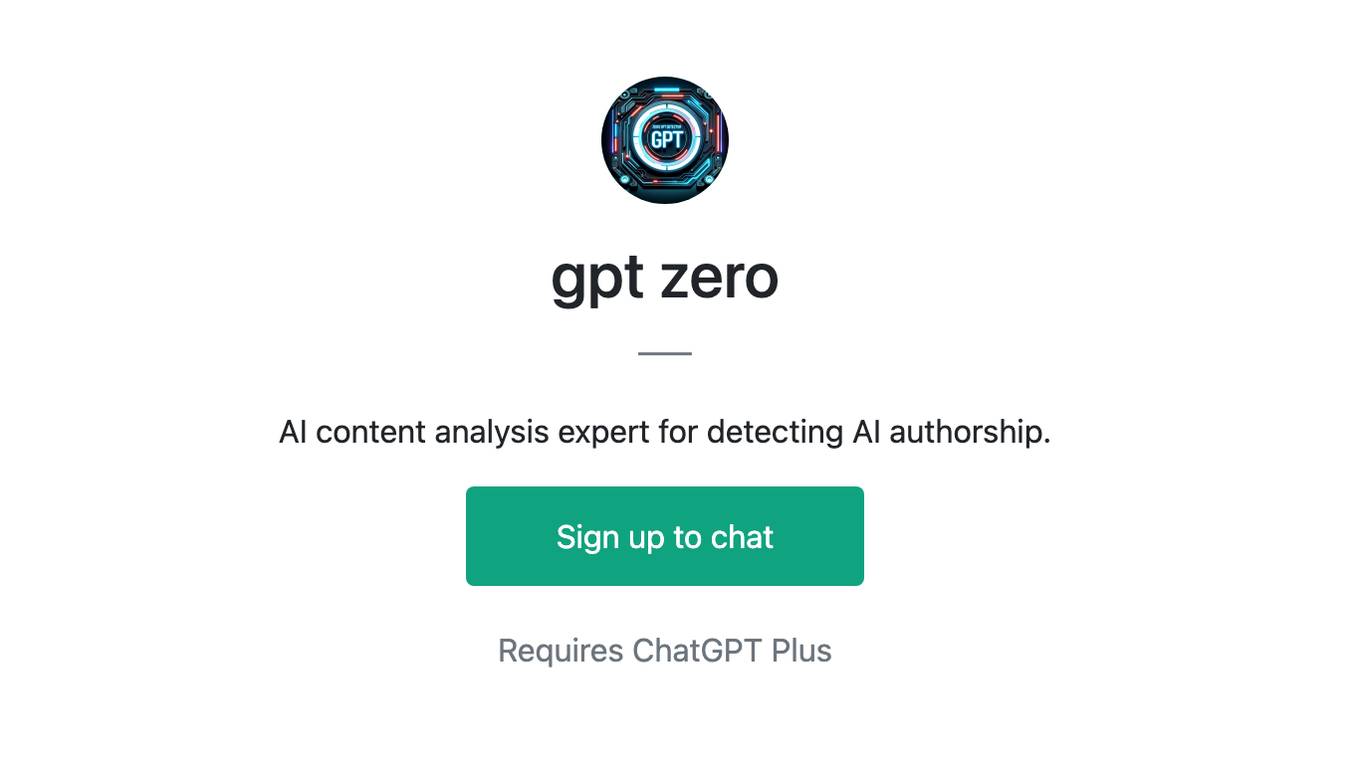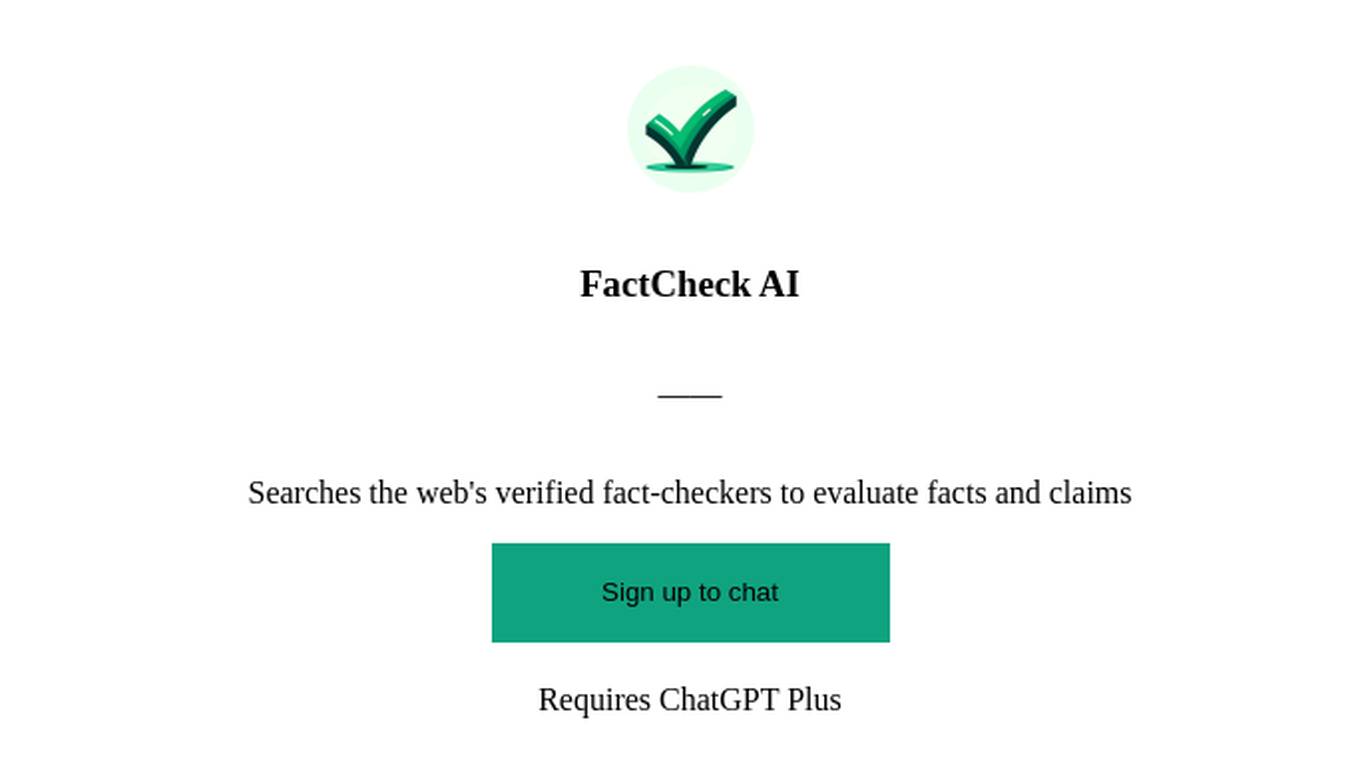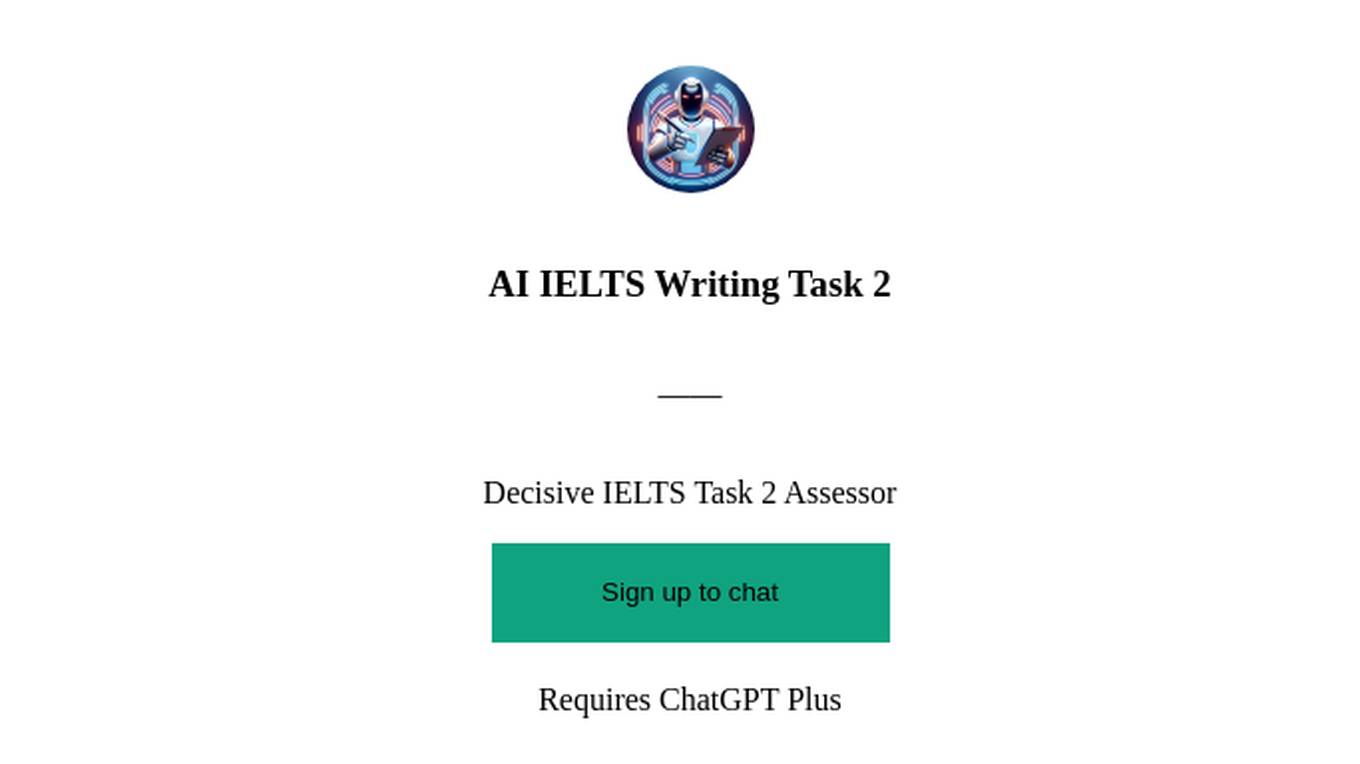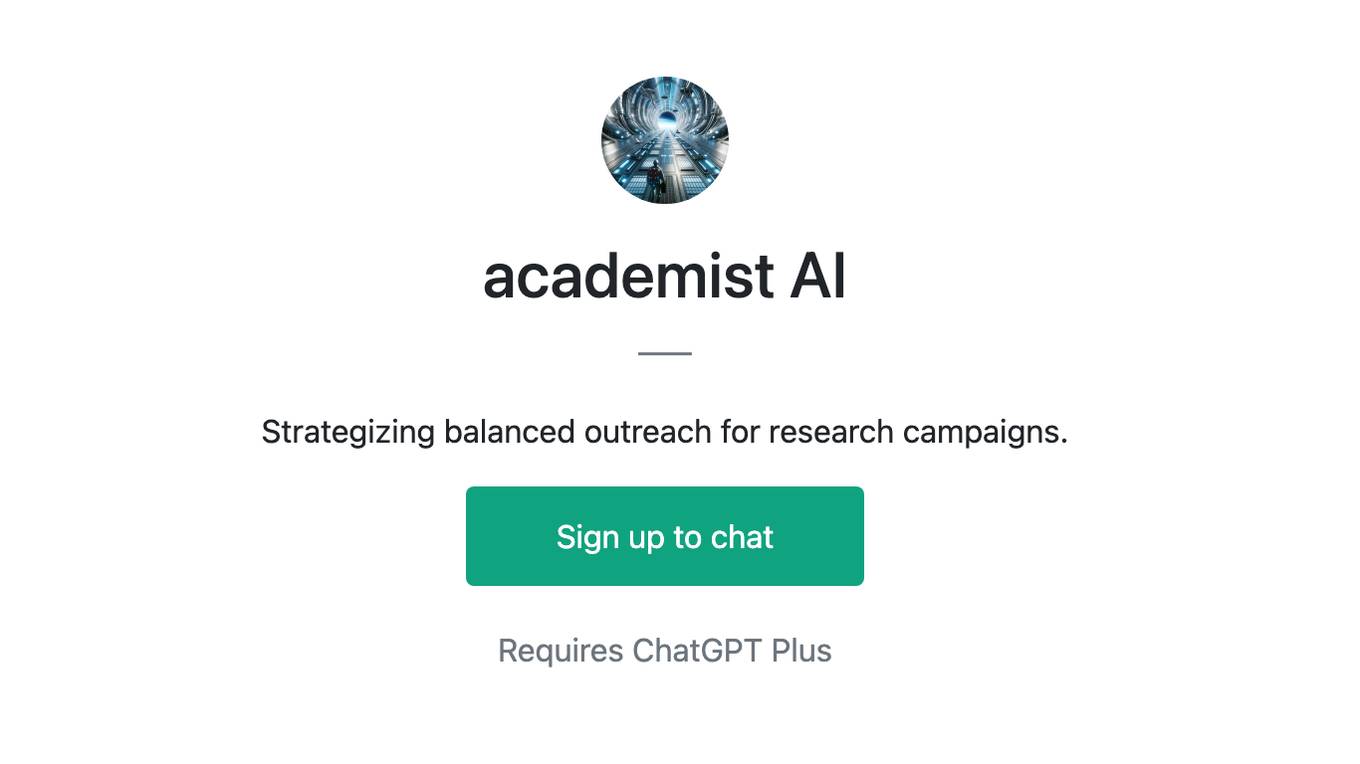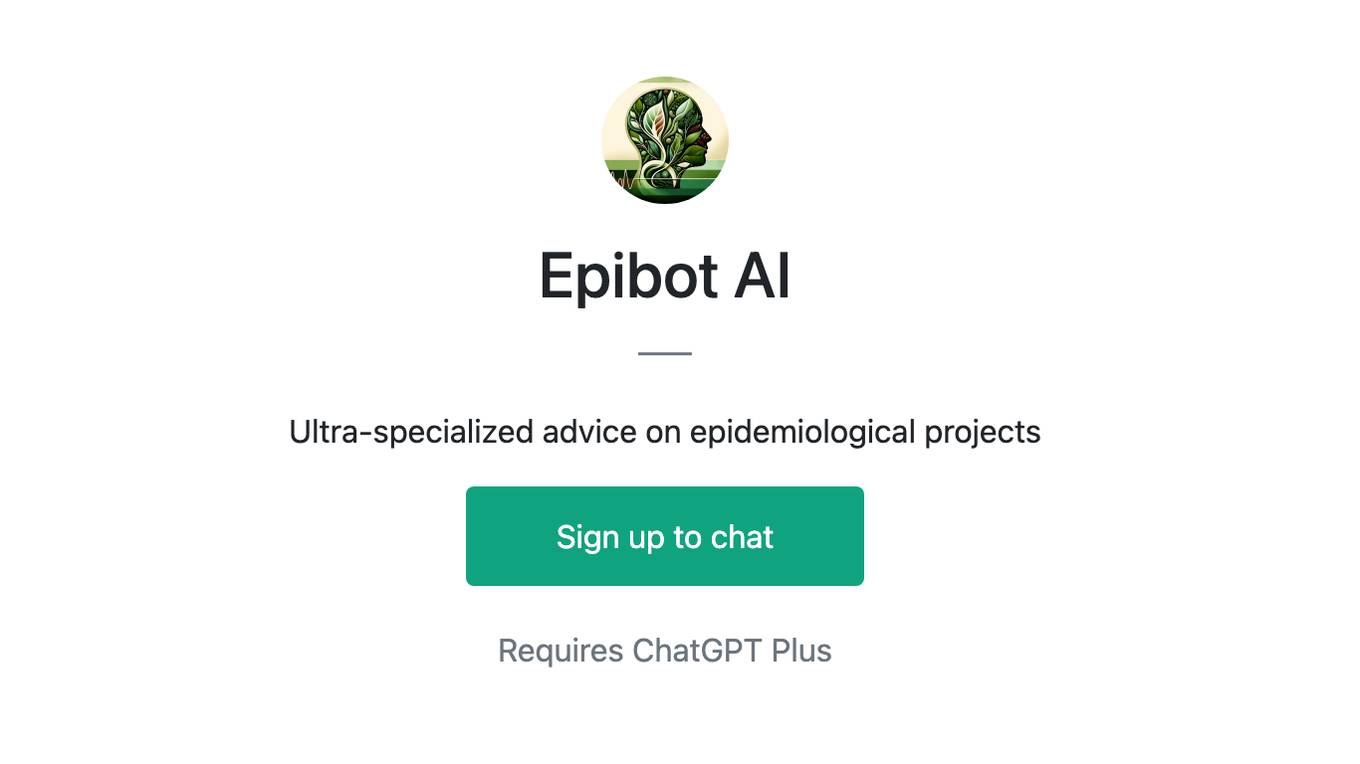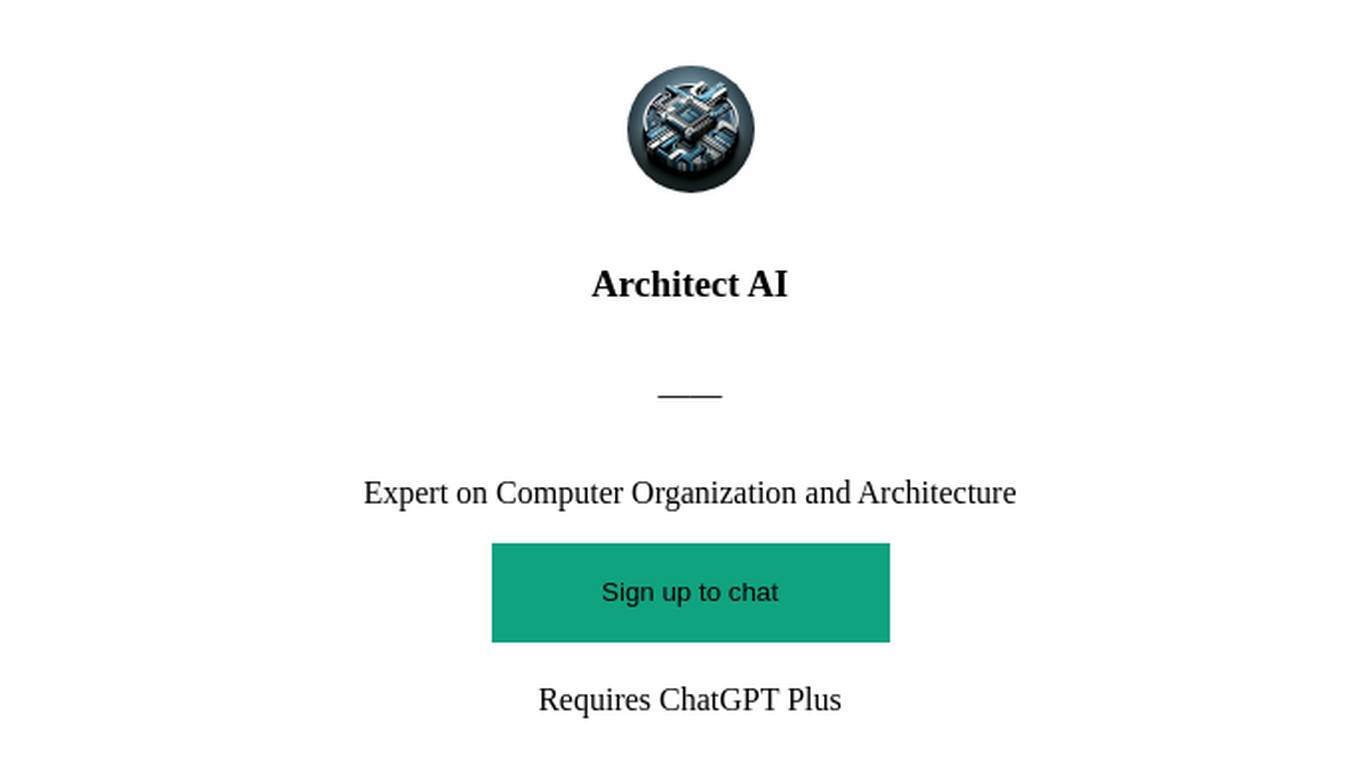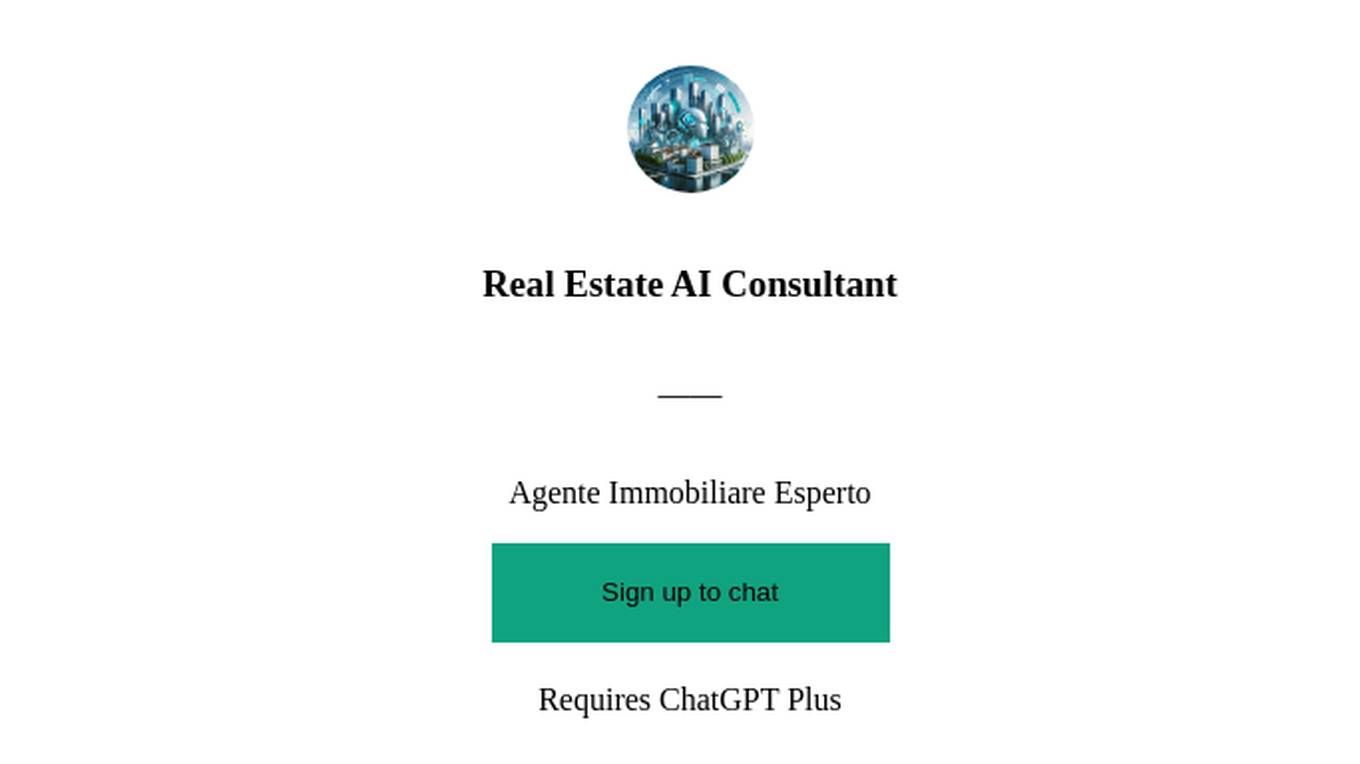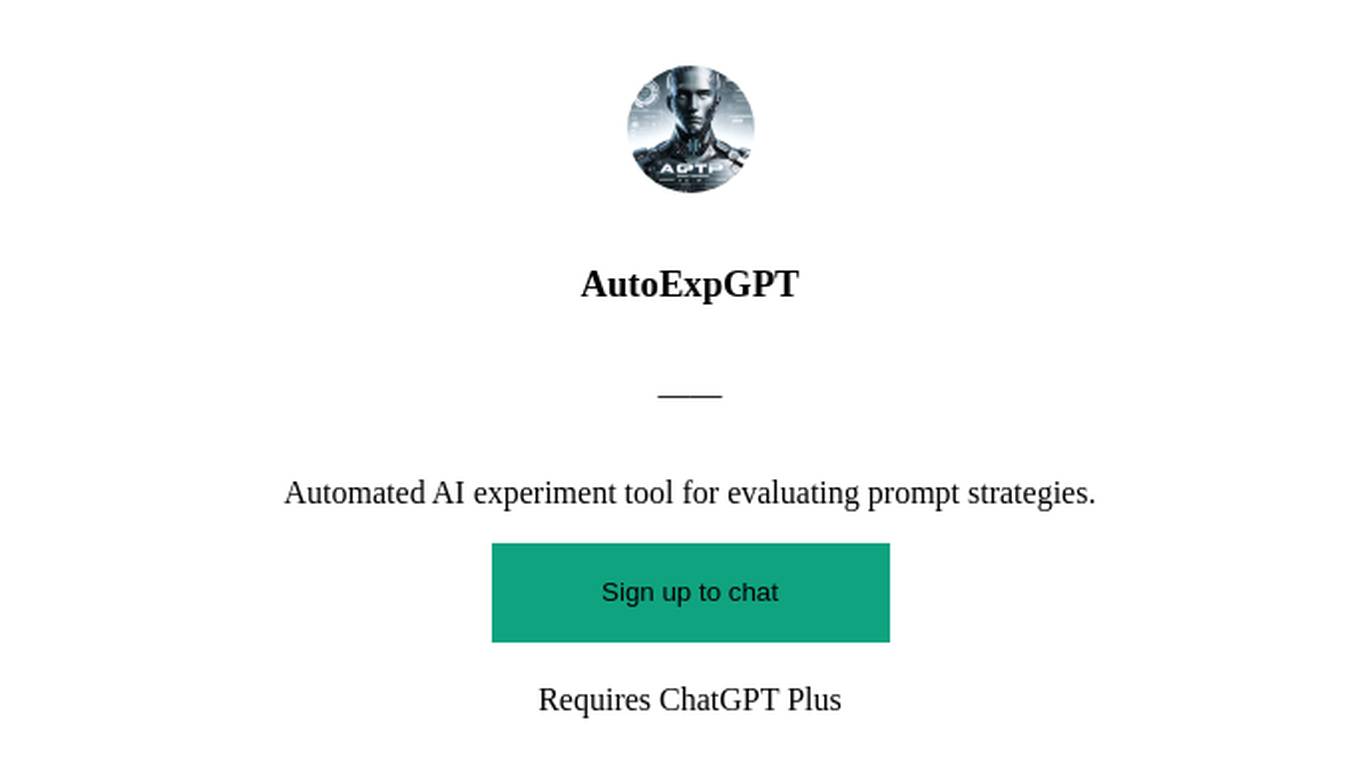Best AI tools for< Evaluate Ai Ethics >
20 - AI tool Sites
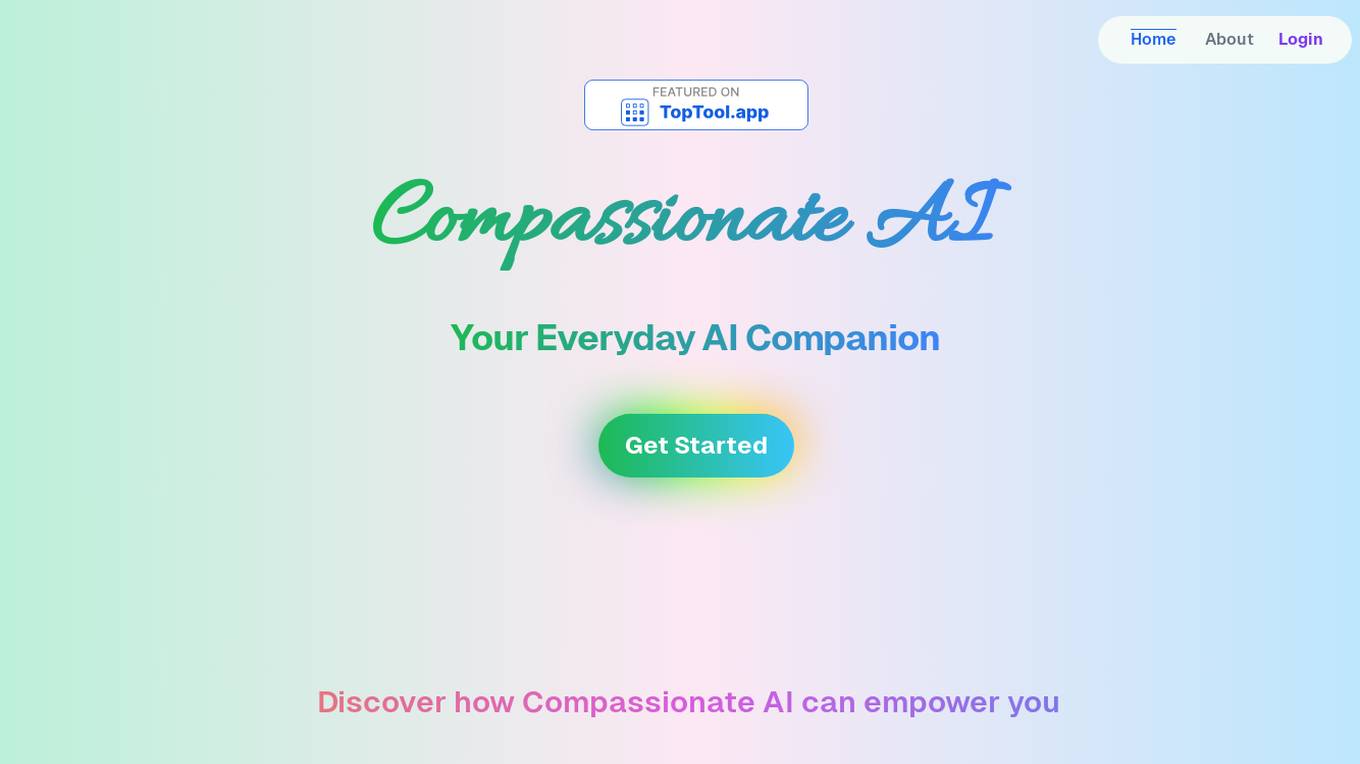
Compassionate AI
Compassionate AI is a cutting-edge AI-powered platform that empowers individuals and organizations to create and deploy AI solutions that are ethical, responsible, and aligned with human values. With Compassionate AI, users can access a comprehensive suite of tools and resources to design, develop, and implement AI systems that prioritize fairness, transparency, and accountability.
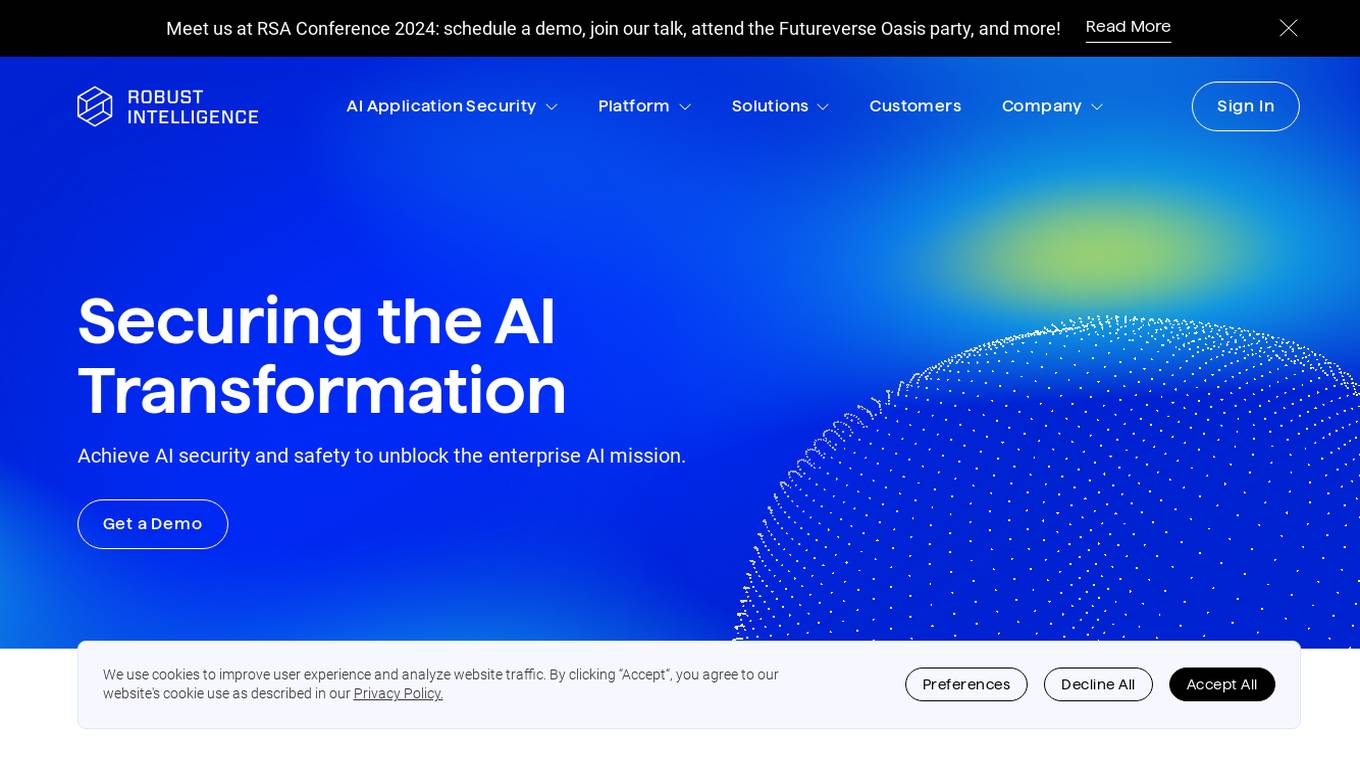
Robust Intelligence
Robust Intelligence is an end-to-end security solution for AI applications. It automates the evaluation of AI models, data, and files for security and safety vulnerabilities and provides guardrails for AI applications in production against integrity, privacy, abuse, and availability violations. Robust Intelligence helps enterprises remove AI security blockers, save time and resources, meet AI safety and security standards, align AI security across stakeholders, and protect against evolving threats.
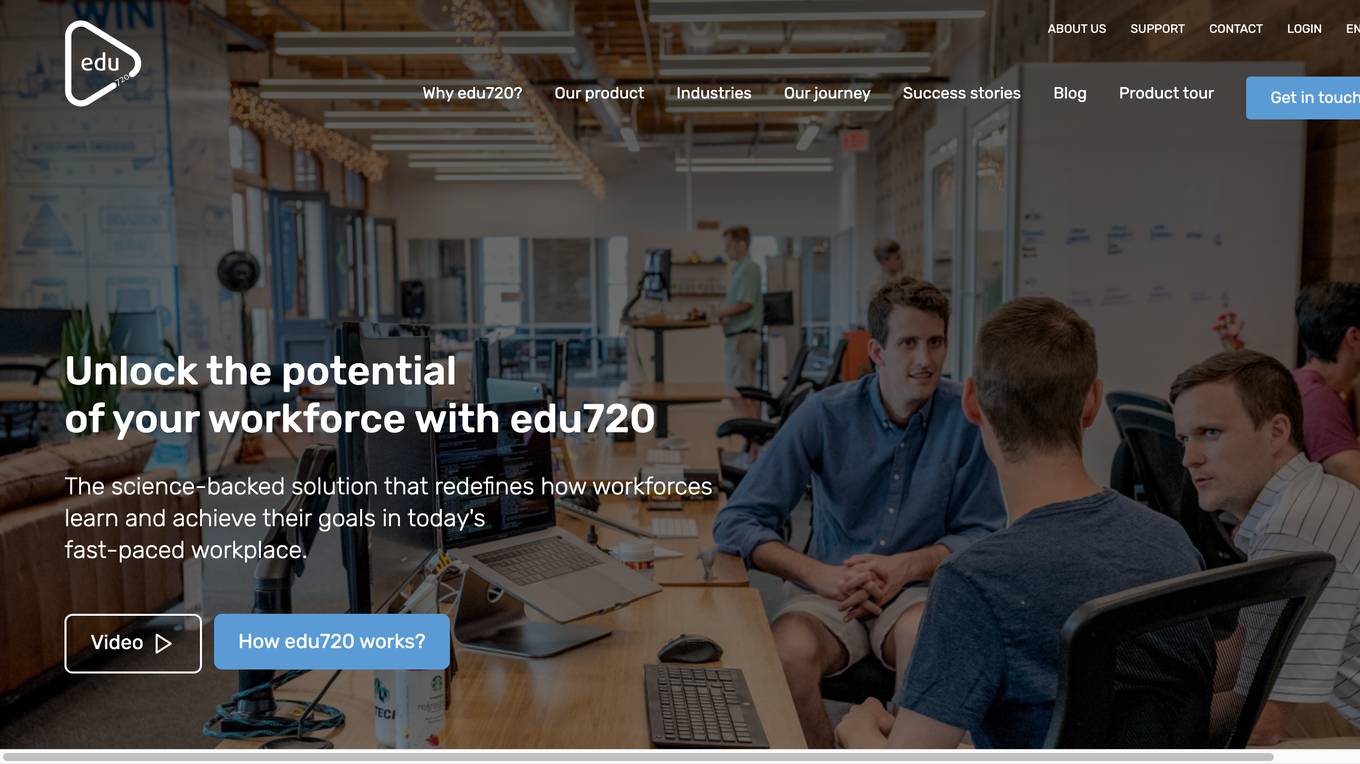
edu720
edu720 is a science-backed learning platform that uses AI and nanolearning to redefine how workforces learn and achieve their goals. It provides pre-built learning modules on various topics, including cybersecurity, privacy, and AI ethics. edu720's 360-degree approach ensures that all employees, regardless of their status or location, fully understand and absorb the knowledge conveyed.
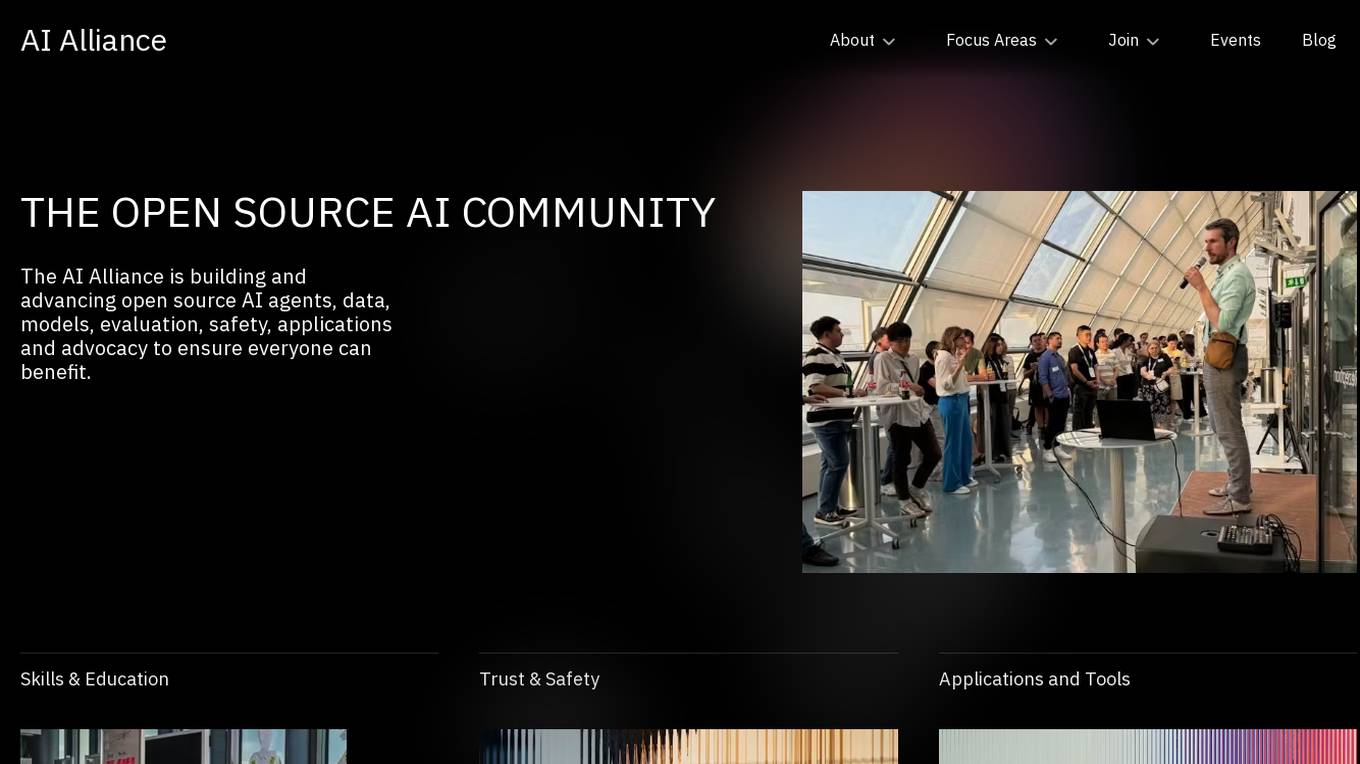
AI Alliance
The AI Alliance is a community dedicated to building and advancing open-source AI agents, data, models, evaluation, safety, applications, and advocacy to ensure everyone can benefit. They focus on various areas such as skills and education, trust and safety, applications and tools, hardware enablement, foundation models, and advocacy. The organization supports global AI skill-building, education, and exploratory research, creates benchmarks and tools for safe generative AI, builds capable tools for AI model builders and developers, fosters AI hardware accelerator ecosystem, enables open foundation models and datasets, and advocates for regulatory policies for healthy AI ecosystems.
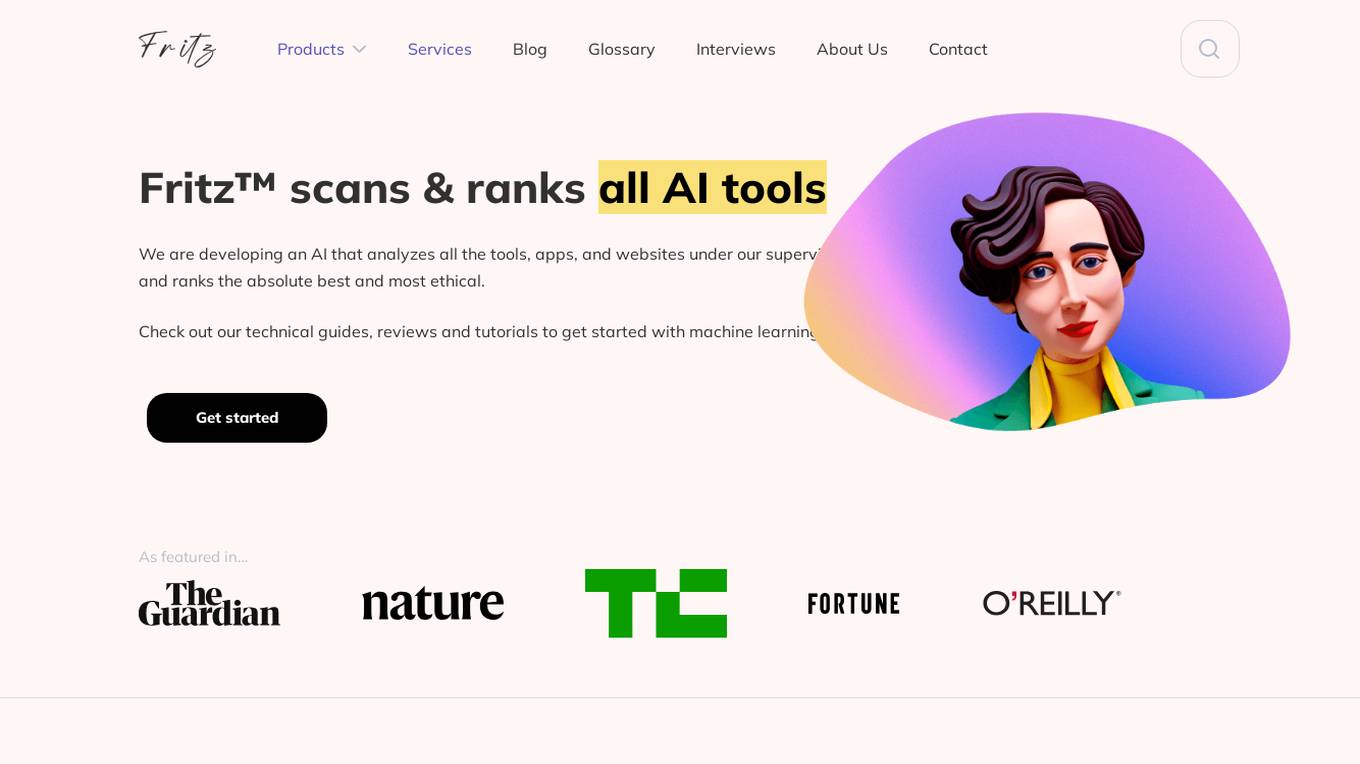
Fritz AI
Fritz AI is an AI tool that scans and ranks all AI tools, apps, and websites based on a set of criteria to determine the best and most ethical options. They provide technical guides, reviews, and tutorials to help users get started with machine learning. Fritz AI focuses on ethics, functionality, user experience, and innovation when evaluating tools. Users can contribute tool suggestions and collaborate with the Fritz AI team. The platform also offers beginner-friendly guides, consulting services, and promotes ethical use of AI and machine learning technologies.
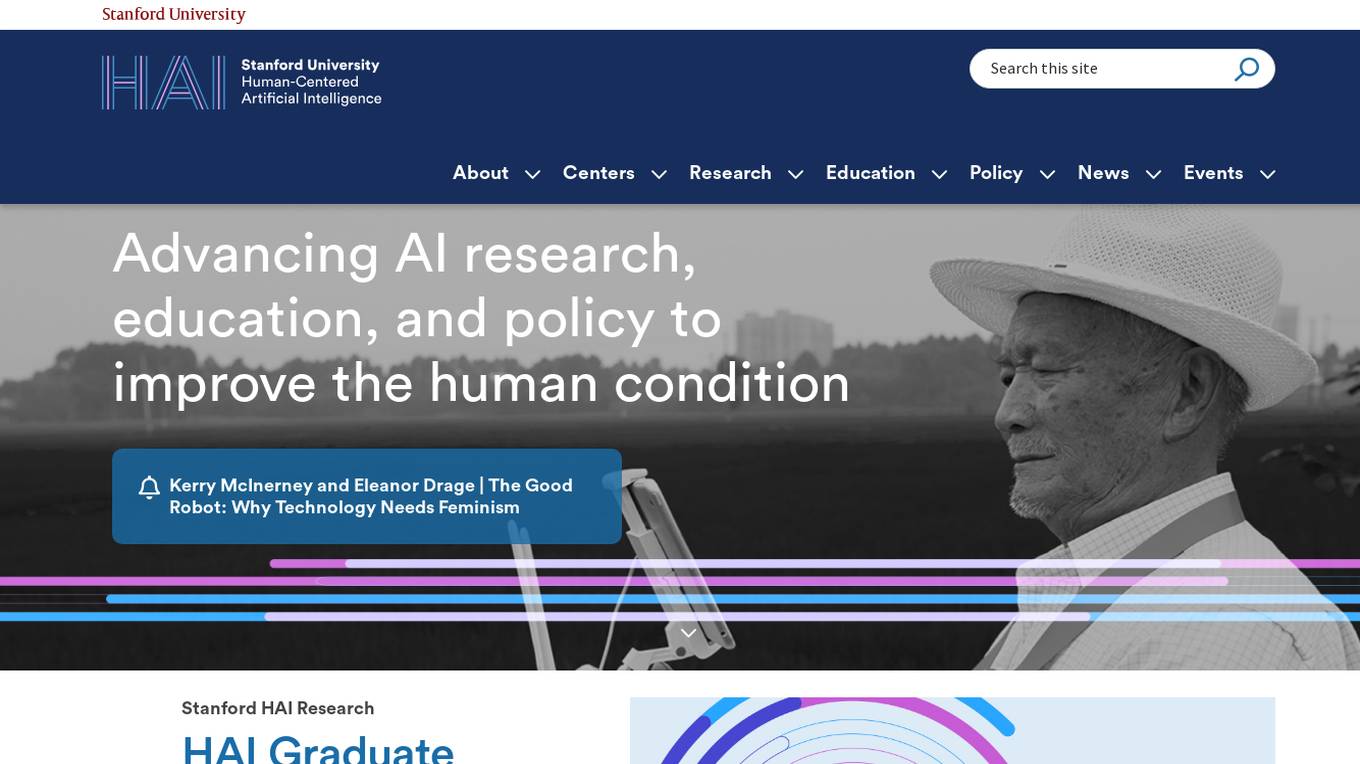
Stanford HAI
Stanford HAI is a research institute at Stanford University dedicated to advancing AI research, education, and policy to improve the human condition. The institute brings together researchers from a variety of disciplines to work on a wide range of AI-related projects, including developing new AI algorithms, studying the ethical and societal implications of AI, and creating educational programs to train the next generation of AI leaders. Stanford HAI is committed to developing human-centered AI technologies and applications that benefit all of humanity.
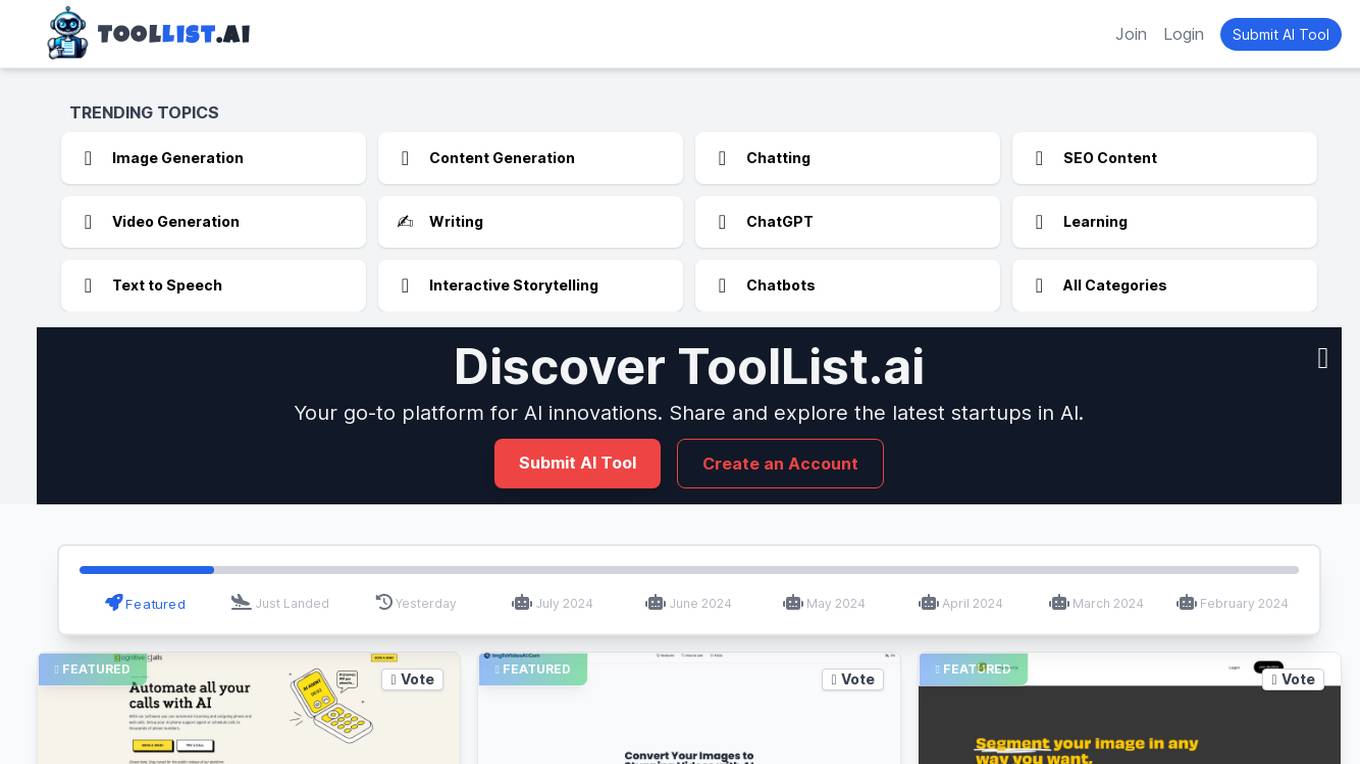
ToolList.ai
ToolList.ai is an AI tools aggregator platform that showcases cutting-edge AI tools and startups. It serves as a hub for enthusiasts, developers, and entrepreneurs to explore the latest advancements in AI technology. Users can discover, submit, and evaluate a wide range of AI tools, fostering innovation and collaboration in the AI field. The platform covers various categories such as AI SaaS platforms, AI for sales & marketing, mobile & web apps, AI development tools, AI analytics, and ethics in AI.
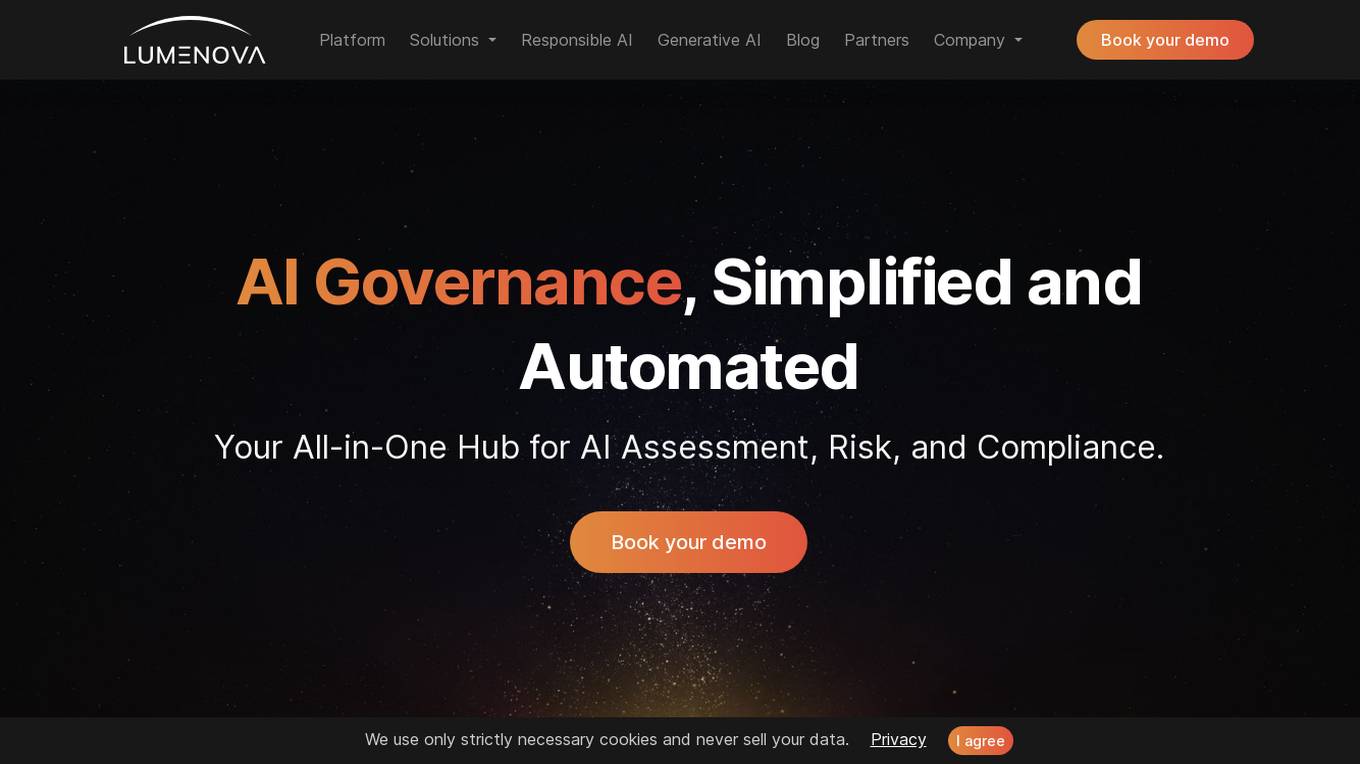
Lumenova AI
Lumenova AI is an AI platform that focuses on making AI ethical, transparent, and compliant. It provides solutions for AI governance, assessment, risk management, and compliance. The platform offers comprehensive evaluation and assessment of AI models, proactive risk management solutions, and simplified compliance management. Lumenova AI aims to help enterprises navigate the future confidently by ensuring responsible AI practices and compliance with regulations.
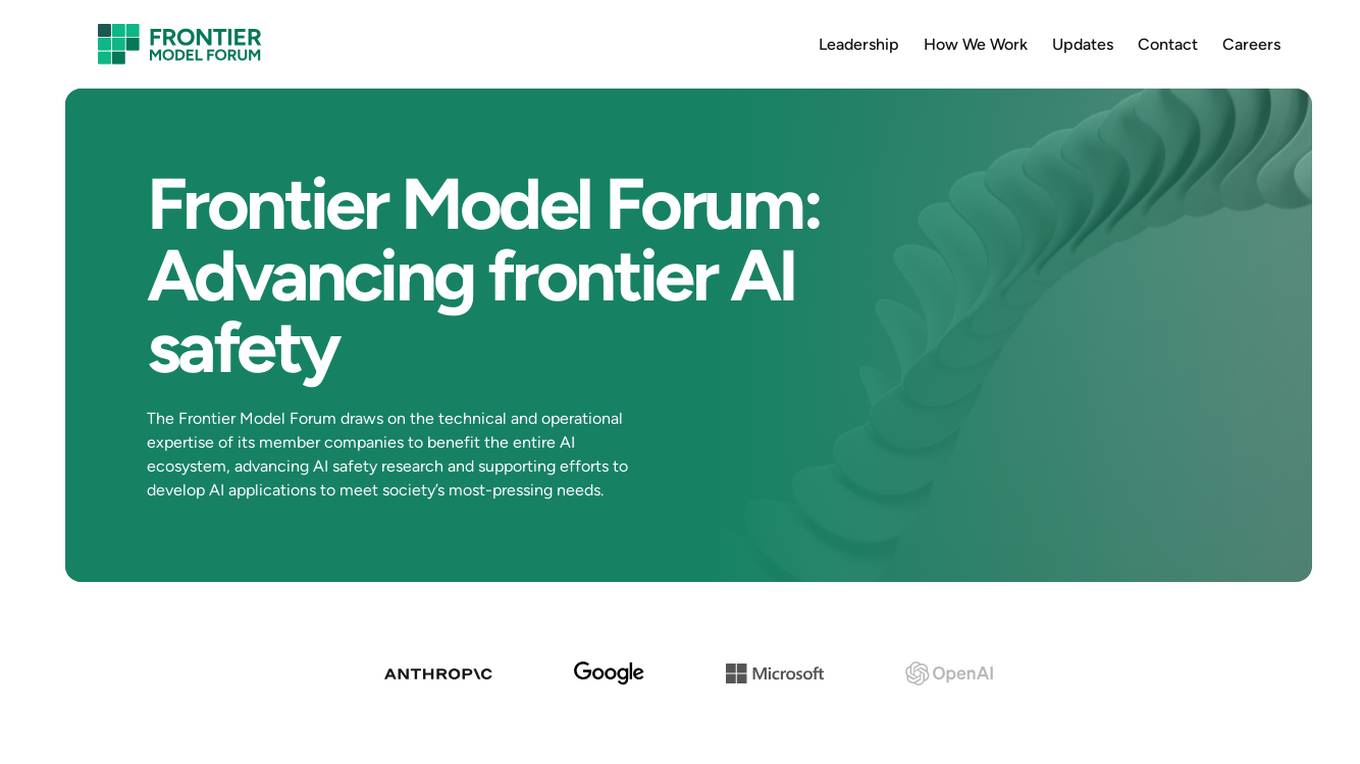
Frontier Model Forum
The Frontier Model Forum (FMF) is a collaborative effort among leading AI companies to advance AI safety and responsibility. The FMF brings together technical and operational expertise to identify best practices, conduct research, and support the development of AI applications that meet society's most pressing needs. The FMF's core objectives include advancing AI safety research, identifying best practices, collaborating across sectors, and helping AI meet society's greatest challenges.
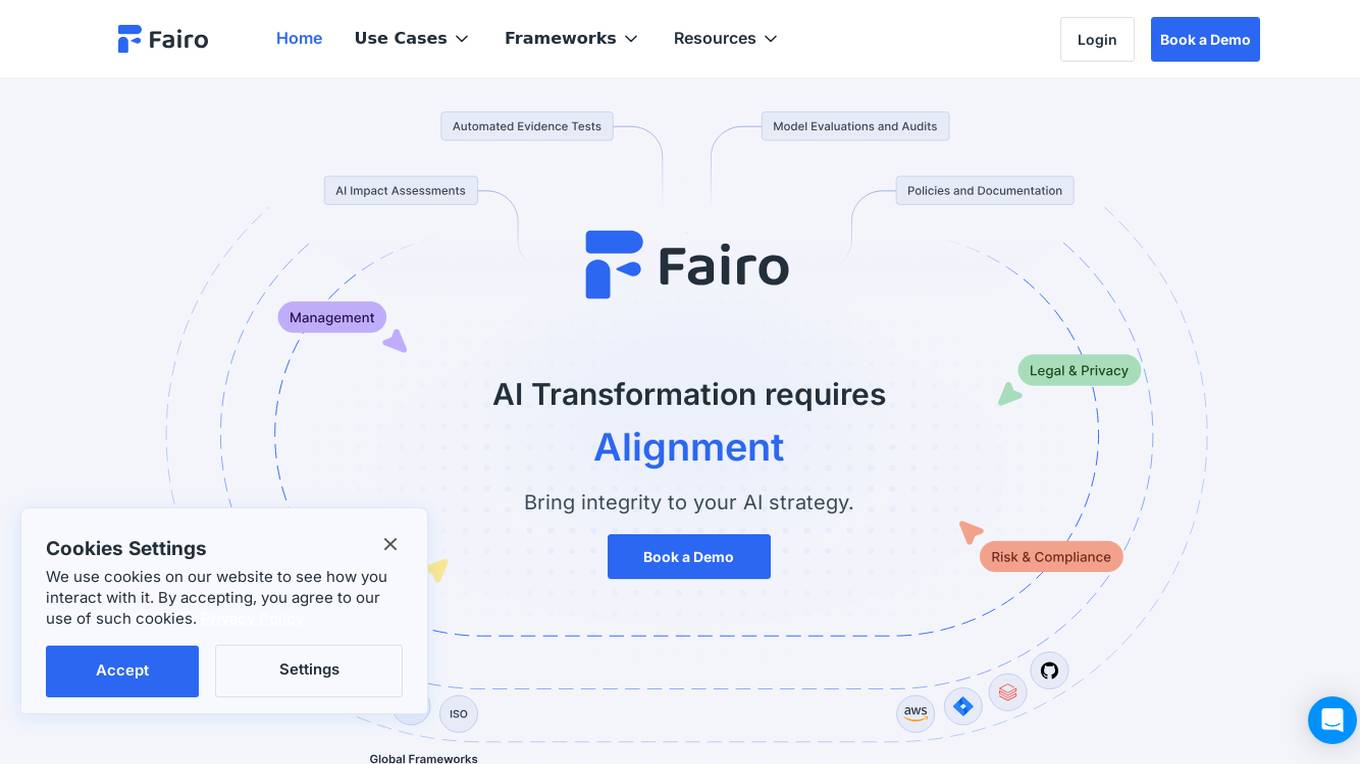
Fairo
Fairo is a platform that facilitates Responsible AI Governance, offering tools for reducing AI hallucinations, managing AI agents and assets, evaluating AI systems, and ensuring compliance with various regulations. It provides a comprehensive solution for organizations to align their AI systems ethically and strategically, automate governance processes, and mitigate risks. Fairo aims to make responsible AI transformation accessible to organizations of all sizes, enabling them to build technology that is profitable, ethical, and transformative.

Dr. Randal S. Olson
Dr. Randal S. Olson is an AI Researcher & Builder known for turning ambitious AI ideas into business wins by bridging the gap between technical promise and real-world impact. His work encompasses data science, AI engineering, and executive strategy. He has worked on various projects in AI, data science, and technology leadership, including the development of the Truesight Expert-grounded AI evaluation platform and the AutoML Tool TPOT. Dr. Olson's focus is on building privacy-first AI solutions that prioritize ethical AI development and user-centric design.
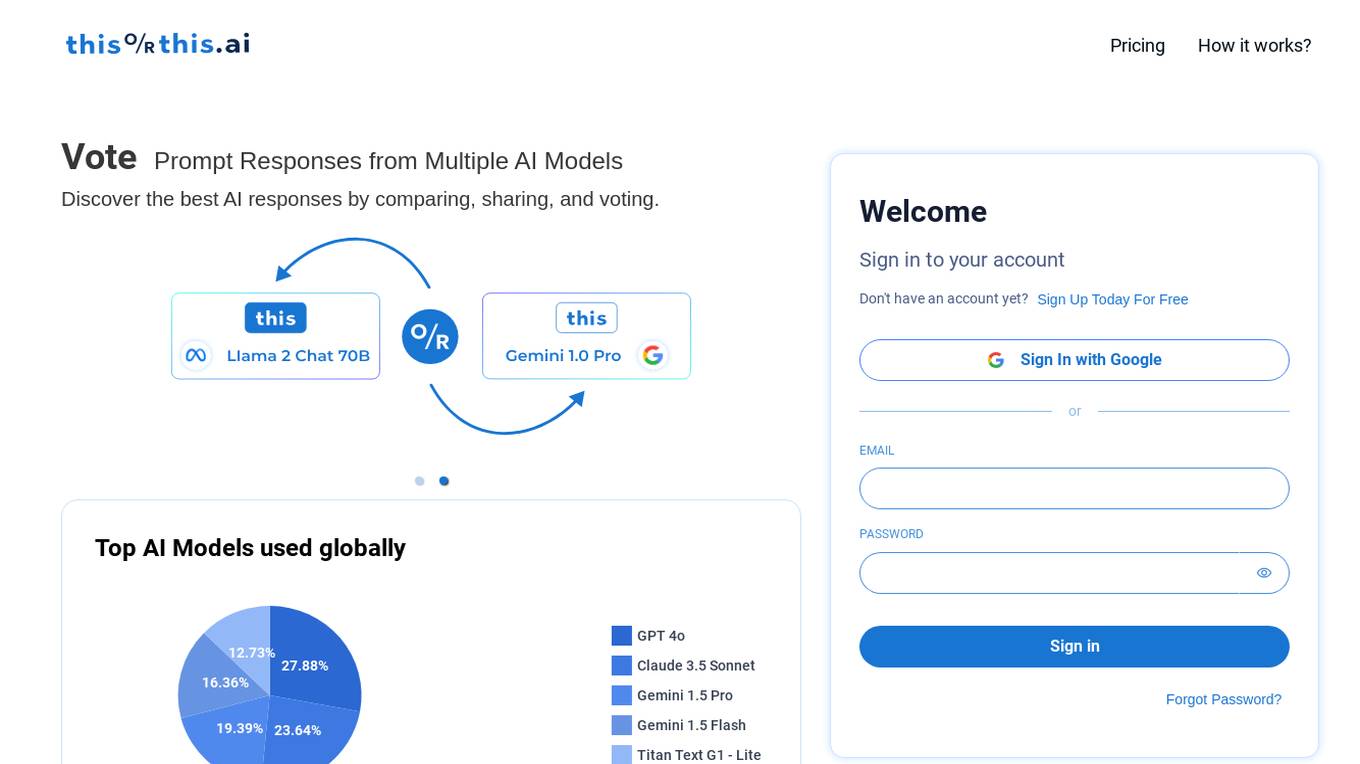
thisorthis.ai
thisorthis.ai is an AI tool that allows users to compare generative AI models and AI model responses. It helps users analyze and evaluate different AI models to make informed decisions. The tool requires JavaScript to be enabled for optimal functionality.

BenchLLM
BenchLLM is an AI tool designed for AI engineers to evaluate LLM-powered apps by running and evaluating models with a powerful CLI. It allows users to build test suites, choose evaluation strategies, and generate quality reports. The tool supports OpenAI, Langchain, and other APIs out of the box, offering automation, visualization of reports, and monitoring of model performance.
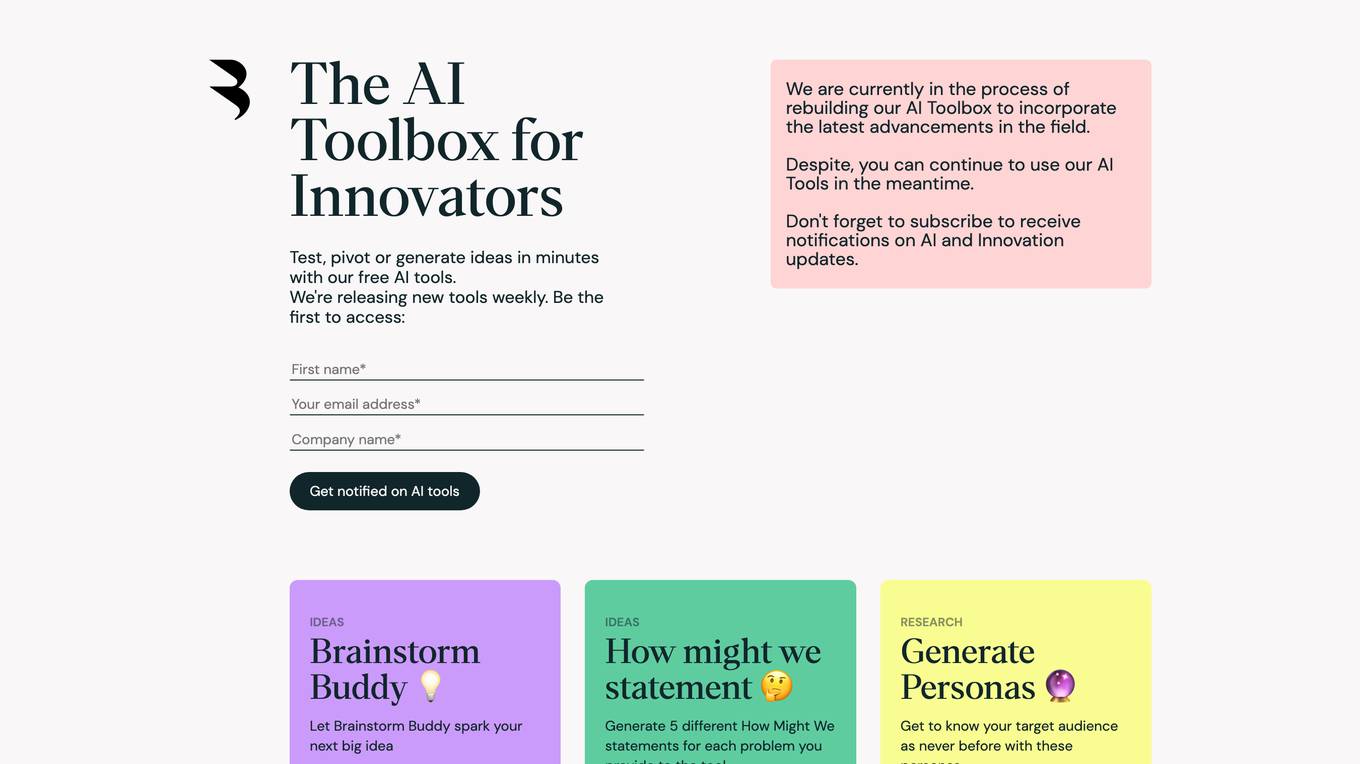
AI Innovation Platform
The AI Innovation Platform is a comprehensive suite of AI-powered tools designed to empower organizations in navigating their digital evolution journey. It offers a range of tools such as AI Adoption Assessment, User Personas, Future Scenarios, How Might We statement generator, Business Reinvention insights, AI Reinvention Blueprint, AI Strategy Matrix, and AI Transformation Simulator. These tools help organizations evaluate AI readiness, generate detailed user personas, explore future scenarios, transform challenges into opportunities, reinvent business models using AI, assess AI positioning, and simulate AI transformation strategies for informed decision-making.
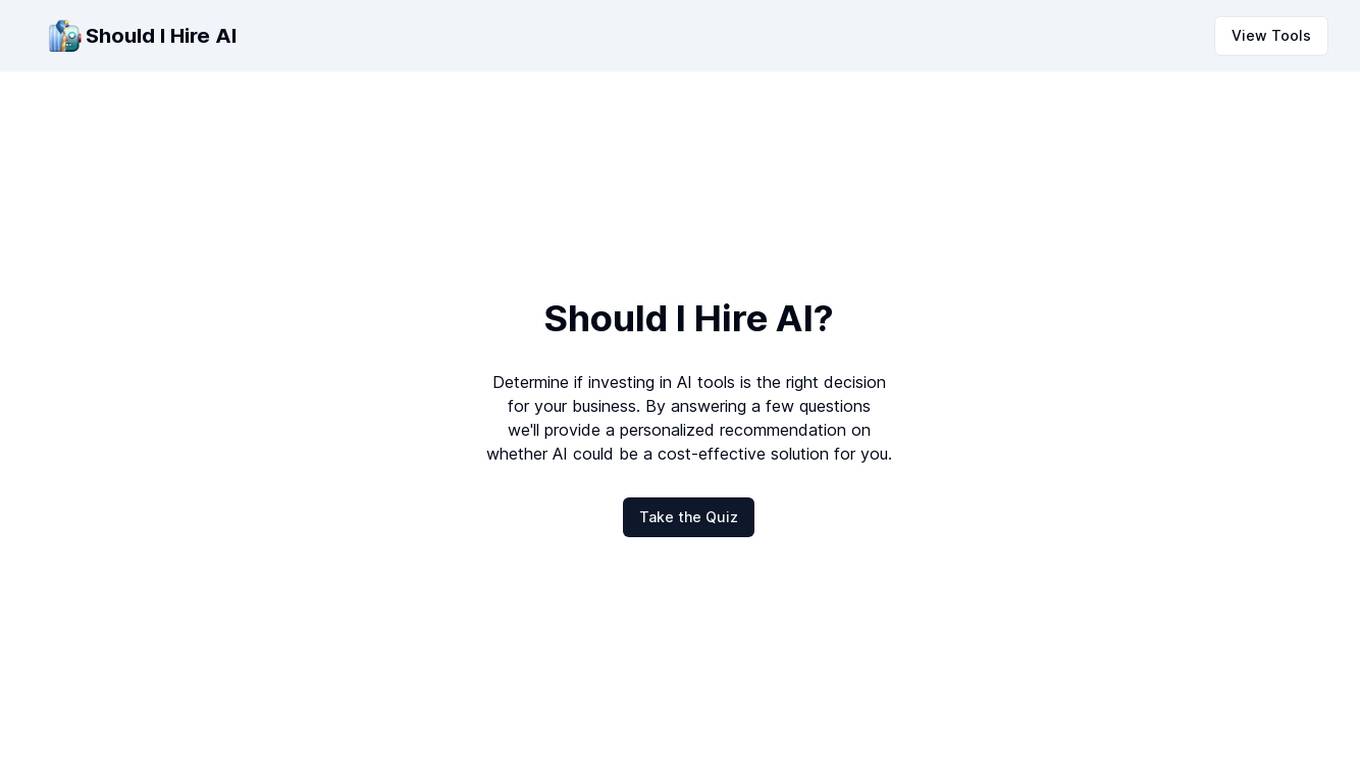
Should I Hire AI
Should I Hire AI is an AI application that helps businesses determine if investing in AI tools is the right decision for them. By answering a few questions, the application provides a personalized recommendation on whether AI could be a cost-effective solution. The tool is designed to assist businesses in making informed decisions about integrating AI into their operations, ultimately aiming to enhance efficiency and productivity.
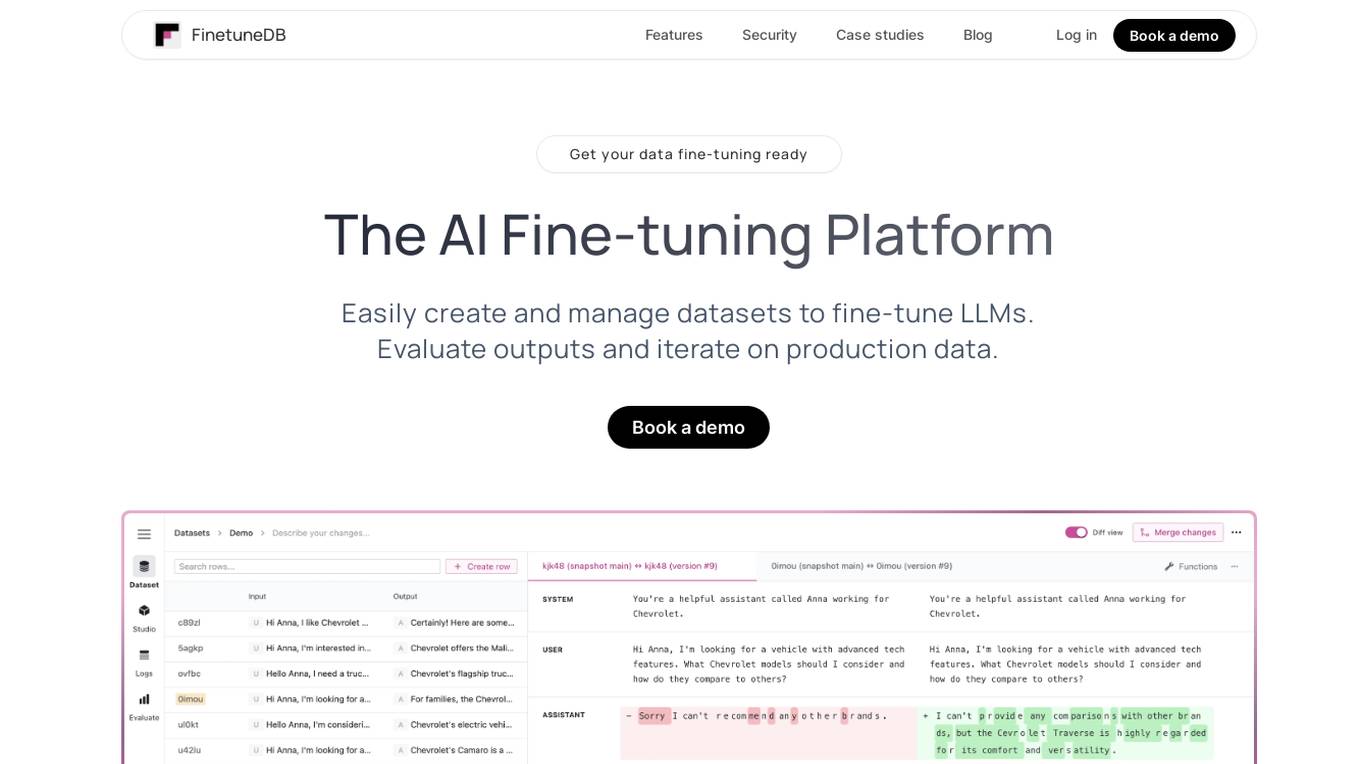
FinetuneDB
FinetuneDB is an AI fine-tuning platform that allows users to easily create and manage datasets to fine-tune LLMs, evaluate outputs, and iterate on production data. It integrates with open-source and proprietary foundation models, and provides a collaborative editor for building datasets. FinetuneDB also offers a variety of features for evaluating model performance, including human and AI feedback, automated evaluations, and model metrics tracking.
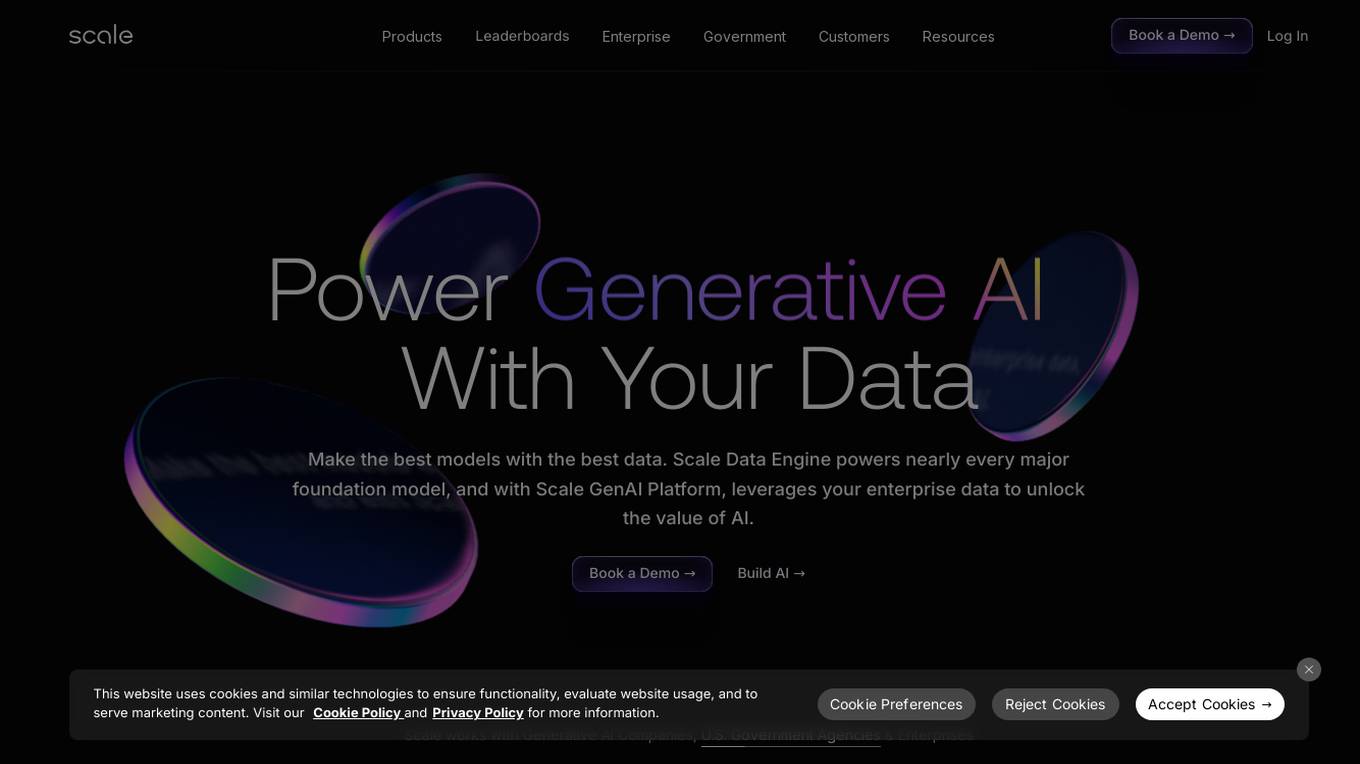
Scale AI
Scale AI is an AI tool that accelerates the development of AI applications for various sectors including enterprise, government, and automotive industries. It offers solutions for training models, fine-tuning, generative AI, and model evaluations. Scale Data Engine and GenAI Platform enable users to leverage enterprise data effectively. The platform collaborates with leading AI models and provides high-quality data for public and private sector applications.
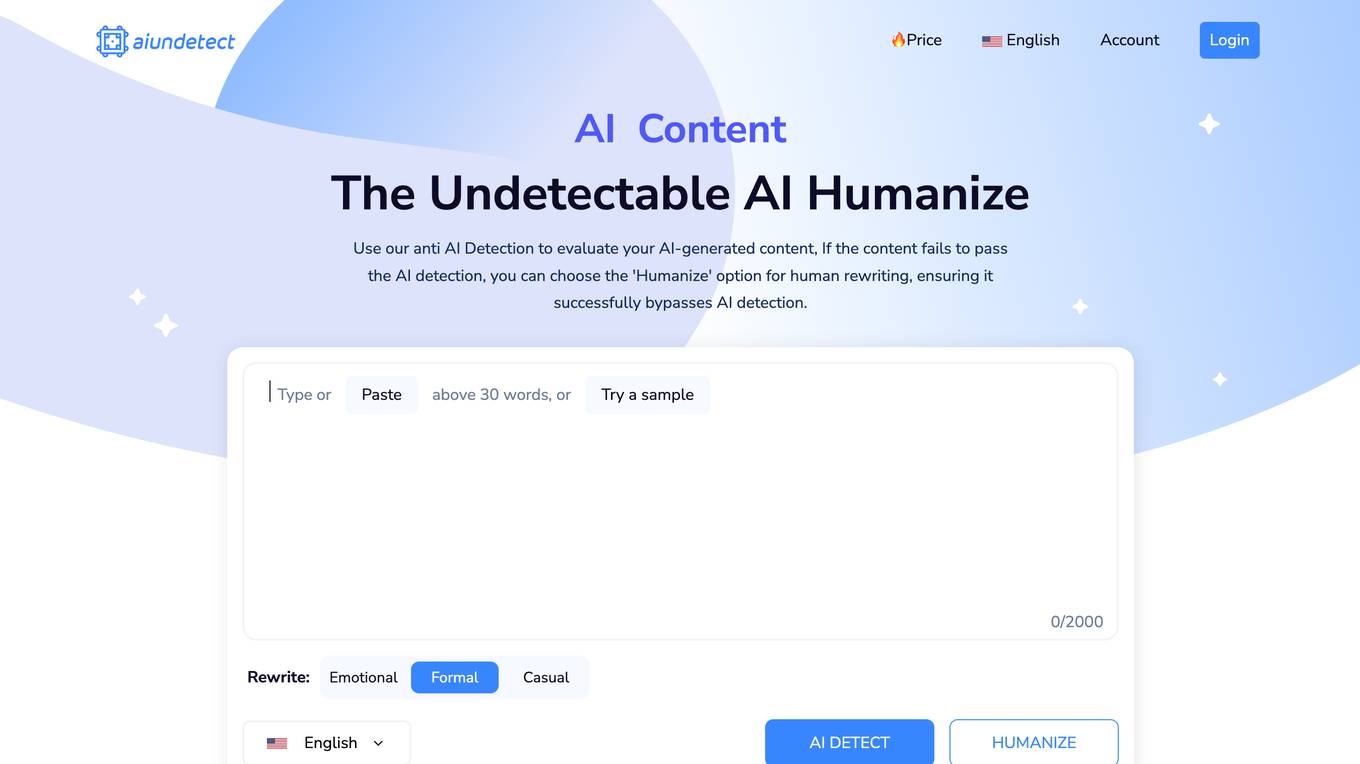
AI Undetect
AI Undetect is a leading AI detection and humanization tool designed to evaluate and rewrite AI-generated content to make it undetectable by AI detectors. The tool offers various AI detectors, a humanizer feature, and supports multiple languages. Users can access detailed AI detection reports and bypass AI detection effortlessly. AI Undetect is suitable for marketers, writers, bloggers, journalists, and researchers looking to ensure the authenticity and credibility of their content.

Unified DevOps platform to build AI applications
This is a unified DevOps platform to build AI applications. It provides a comprehensive set of tools and services to help developers build, deploy, and manage AI applications. The platform includes a variety of features such as a code editor, a debugger, a profiler, and a deployment manager. It also provides access to a variety of AI services, such as natural language processing, machine learning, and computer vision.
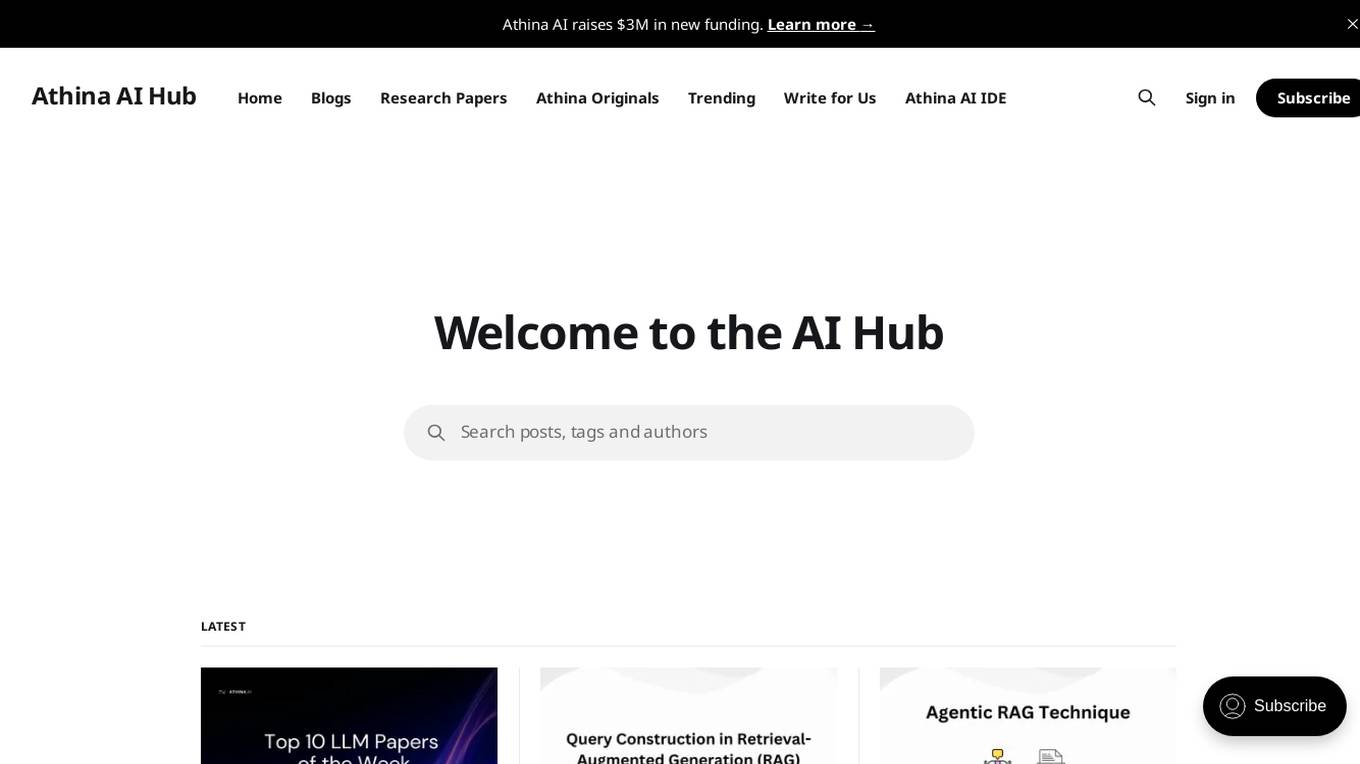
Athina AI Hub
Athina AI Hub is an ultimate resource for AI development teams, offering a wide range of AI development blogs, research papers, and original content. It provides valuable insights into cutting-edge technologies such as Large Language Models (LLMs), Retrieval-Augmented Generation (RAG), and AI agents. Athina AI Hub aims to empower AI engineers, researchers, data scientists, and product developers by offering comprehensive resources and fostering innovation in the field of Artificial Intelligence.
1 - Open Source AI Tools
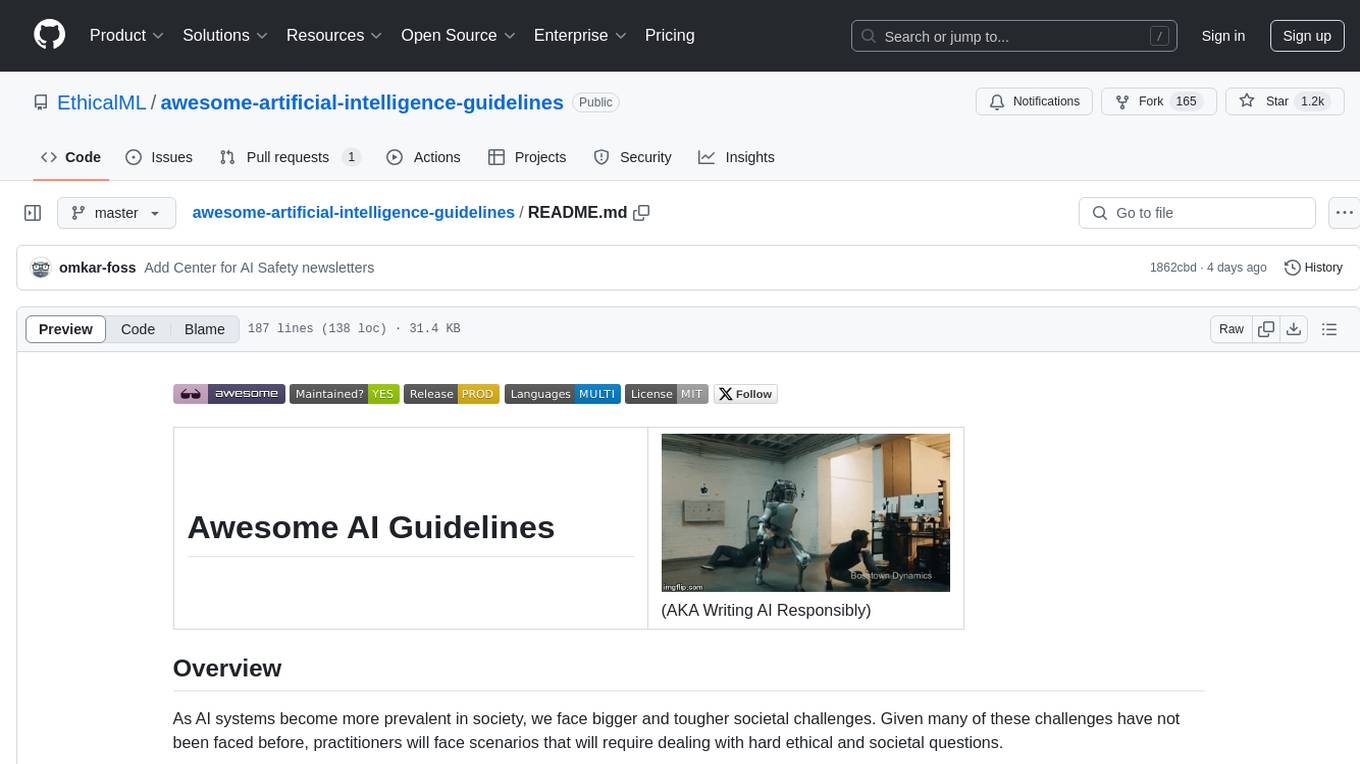
awesome-artificial-intelligence-guidelines
The 'Awesome AI Guidelines' repository aims to simplify the ecosystem of guidelines, principles, codes of ethics, standards, and regulations around artificial intelligence. It provides a comprehensive collection of resources addressing ethical and societal challenges in AI systems, including high-level frameworks, principles, processes, checklists, interactive tools, industry standards initiatives, online courses, research, and industry newsletters, as well as regulations and policies from various countries. The repository serves as a valuable reference for individuals and teams designing, building, and operating AI systems to navigate the complex landscape of AI ethics and governance.
20 - OpenAI Gpts
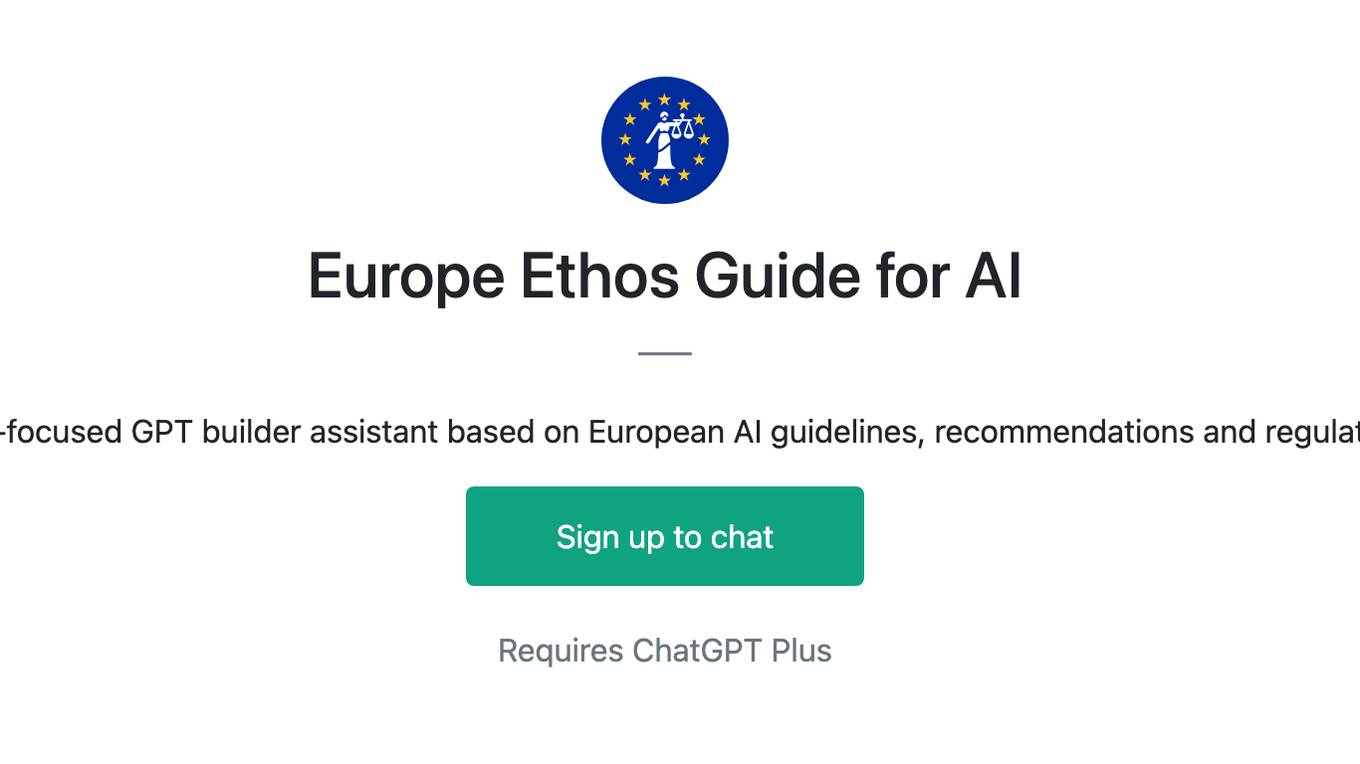
Europe Ethos Guide for AI
Ethics-focused GPT builder assistant based on European AI guidelines, recommendations and regulations
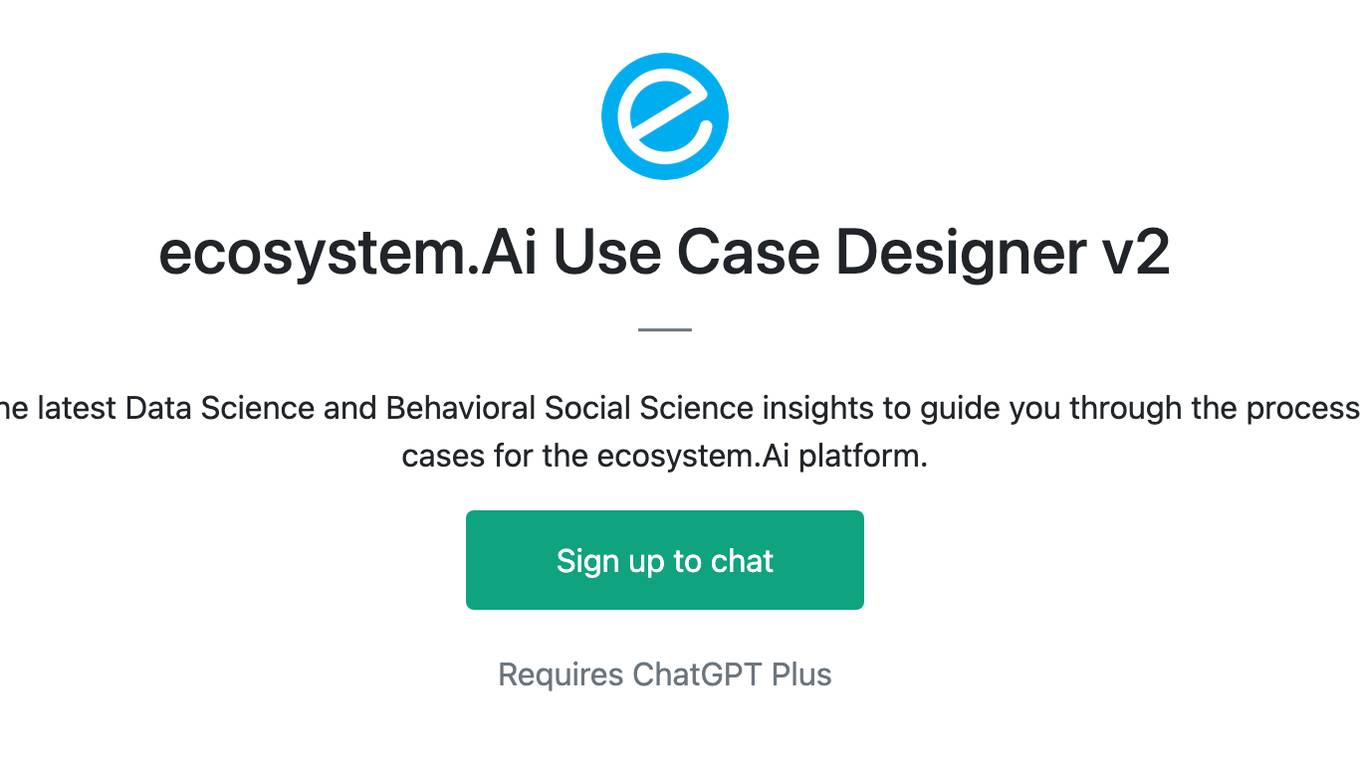
ecosystem.Ai Use Case Designer v2
The use case designer is configured with the latest Data Science and Behavioral Social Science insights to guide you through the process of defining AI and Machine Learning use cases for the ecosystem.Ai platform.
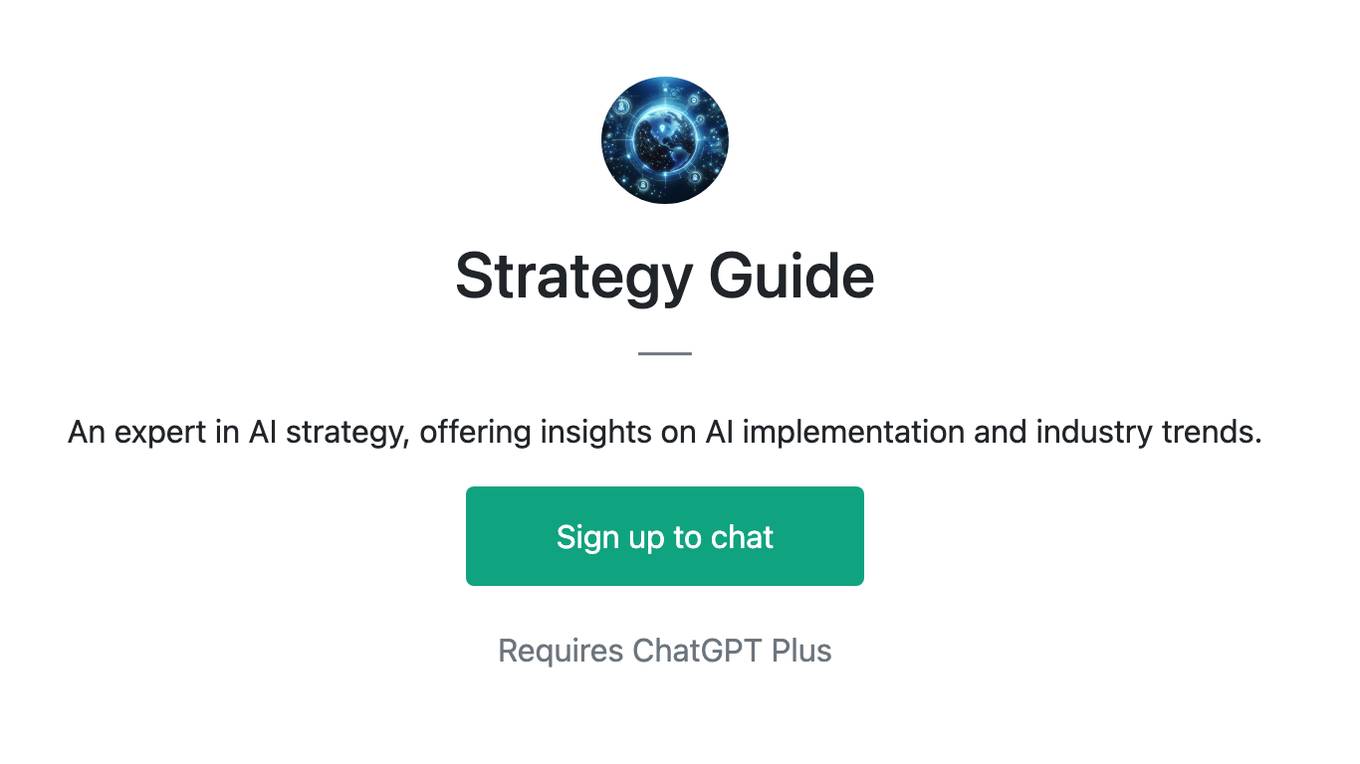
Strategy Guide
An expert in AI strategy, offering insights on AI implementation and industry trends.
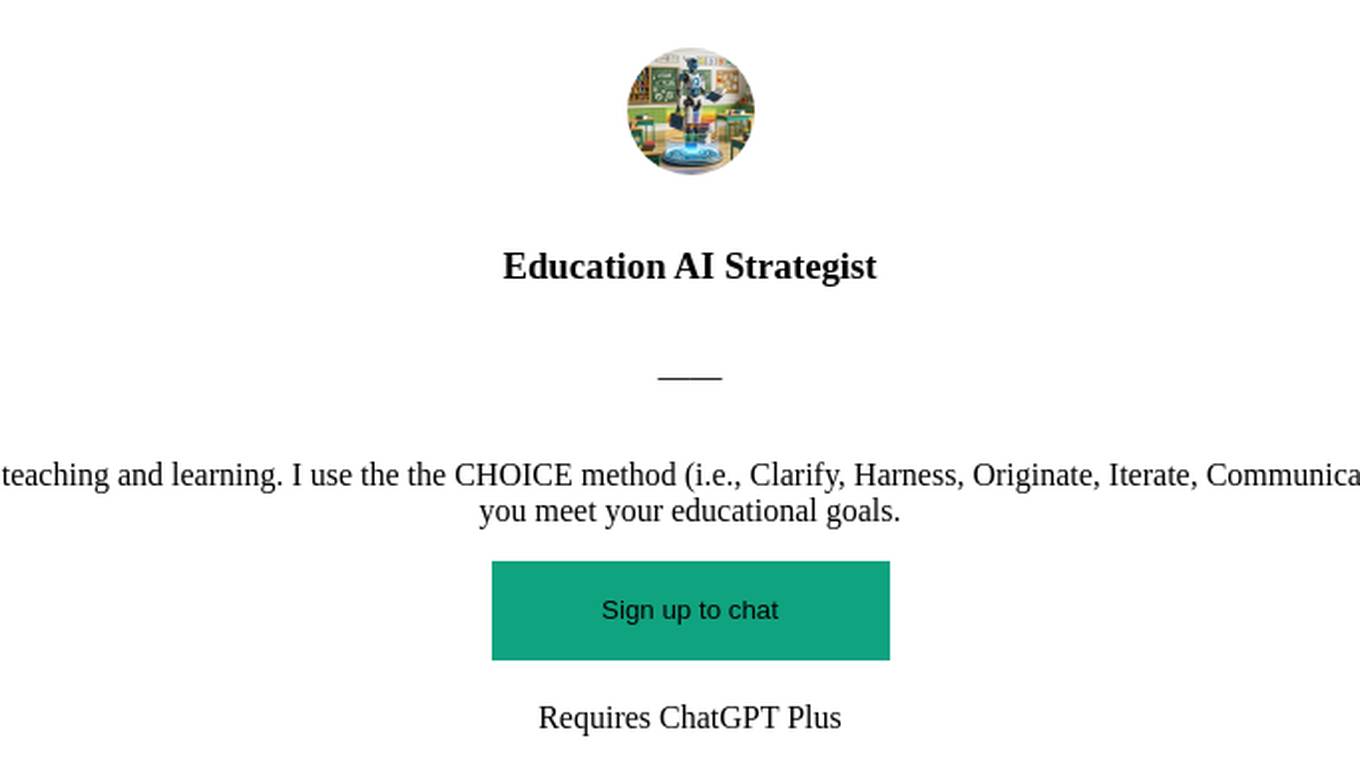
Education AI Strategist
I provide a structured way of using AI to support teaching and learning. I use the the CHOICE method (i.e., Clarify, Harness, Originate, Iterate, Communicate, Evaluate) to ensure that your use of AI can help you meet your educational goals.
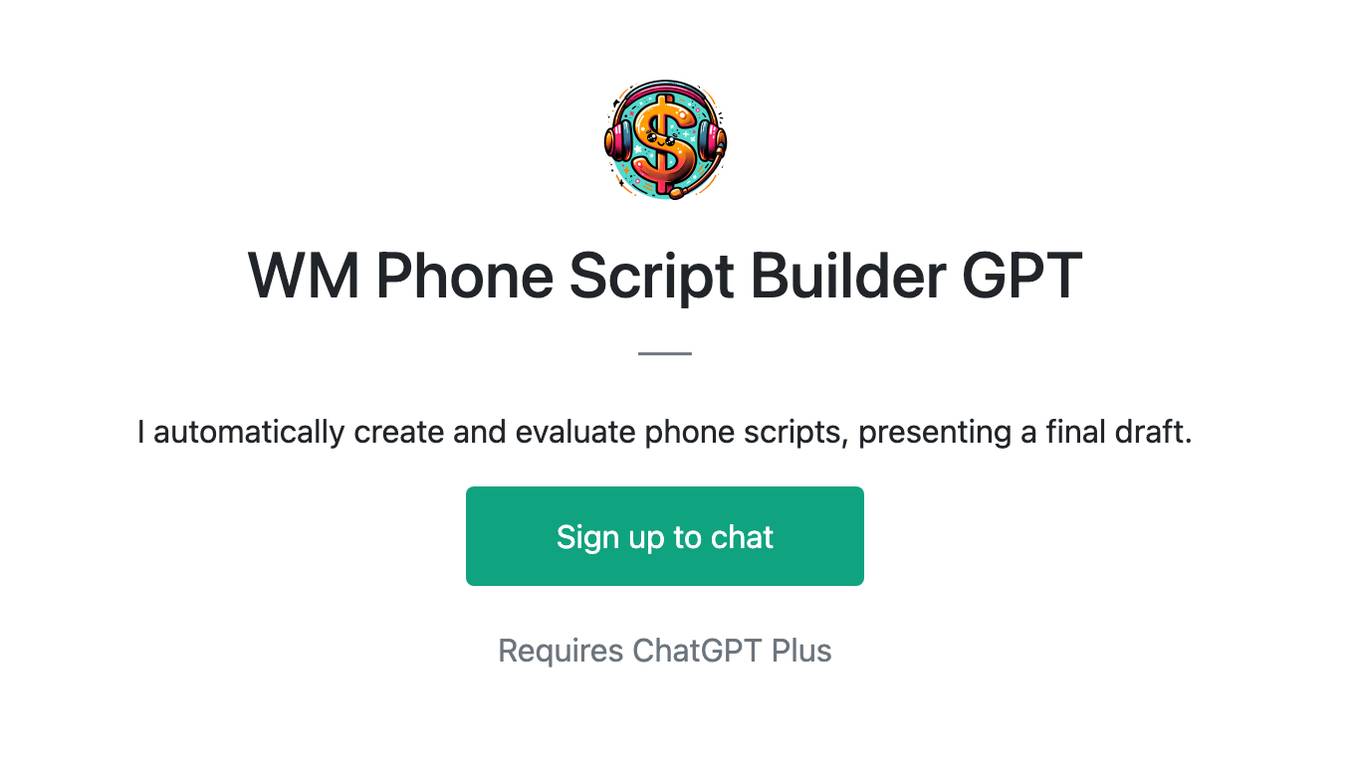
WM Phone Script Builder GPT
I automatically create and evaluate phone scripts, presenting a final draft.
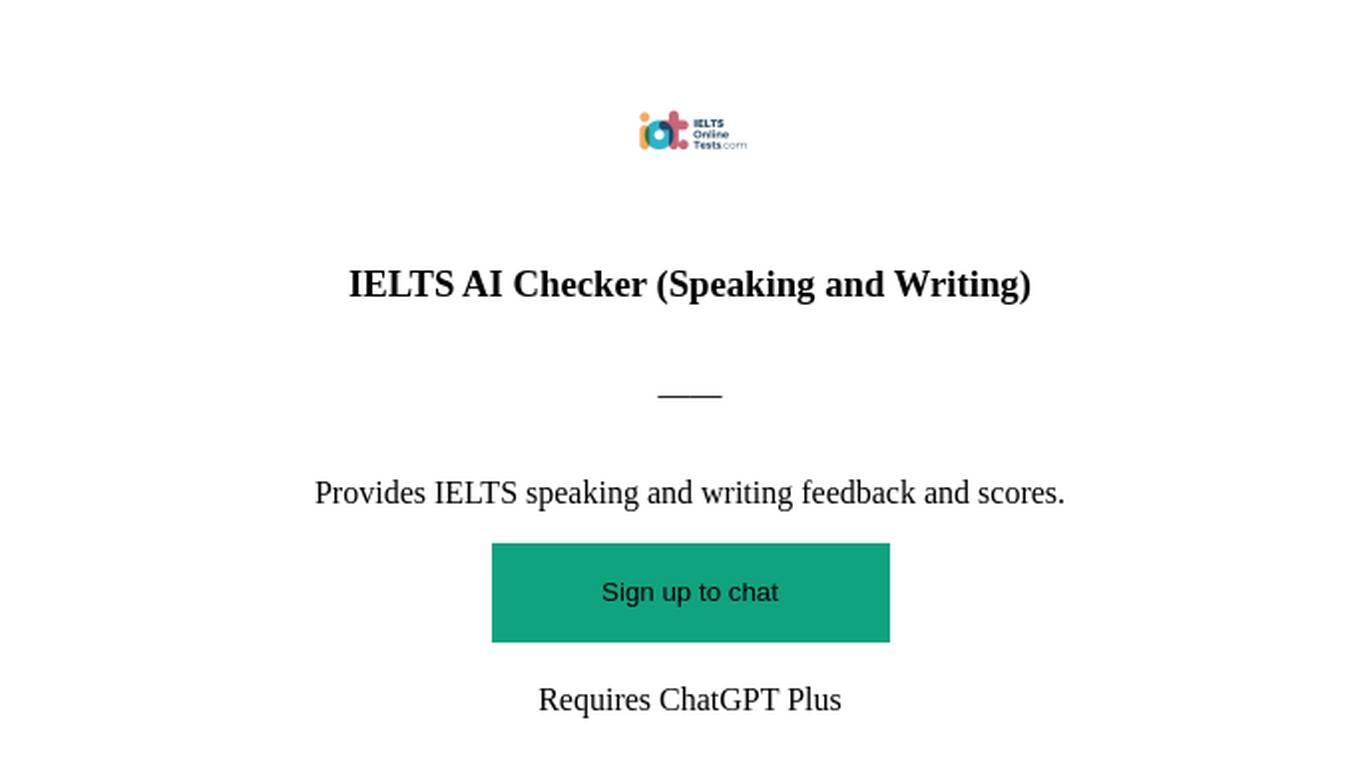
IELTS AI Checker (Speaking and Writing)
Provides IELTS speaking and writing feedback and scores.

AI Golf Statistics
PGA Tour Golf statistics expert, provides up-to-date data and analysis.
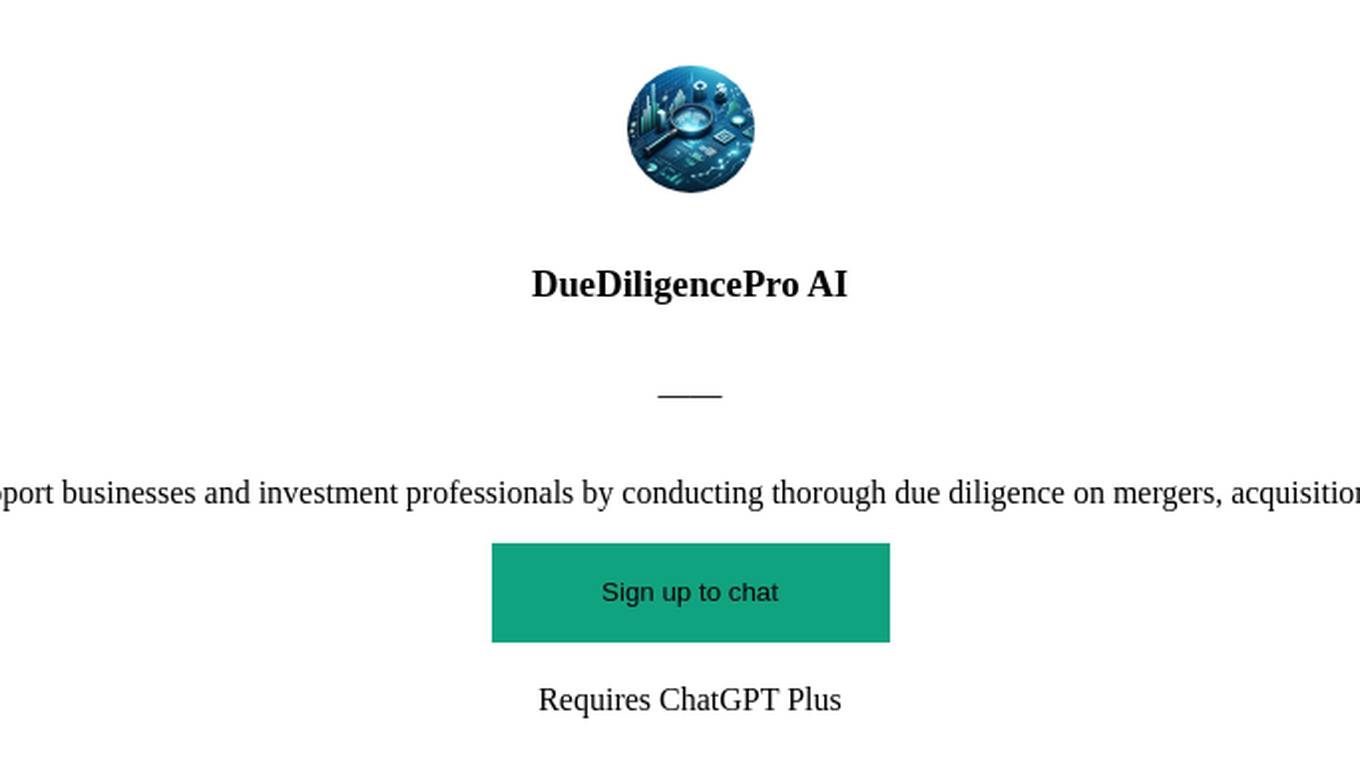
DueDiligencePro AI
"DueDiligencePro AI" is engineered to support businesses and investment professionals by conducting thorough due diligence on mergers, acquisitions, investments, and other business ventures.
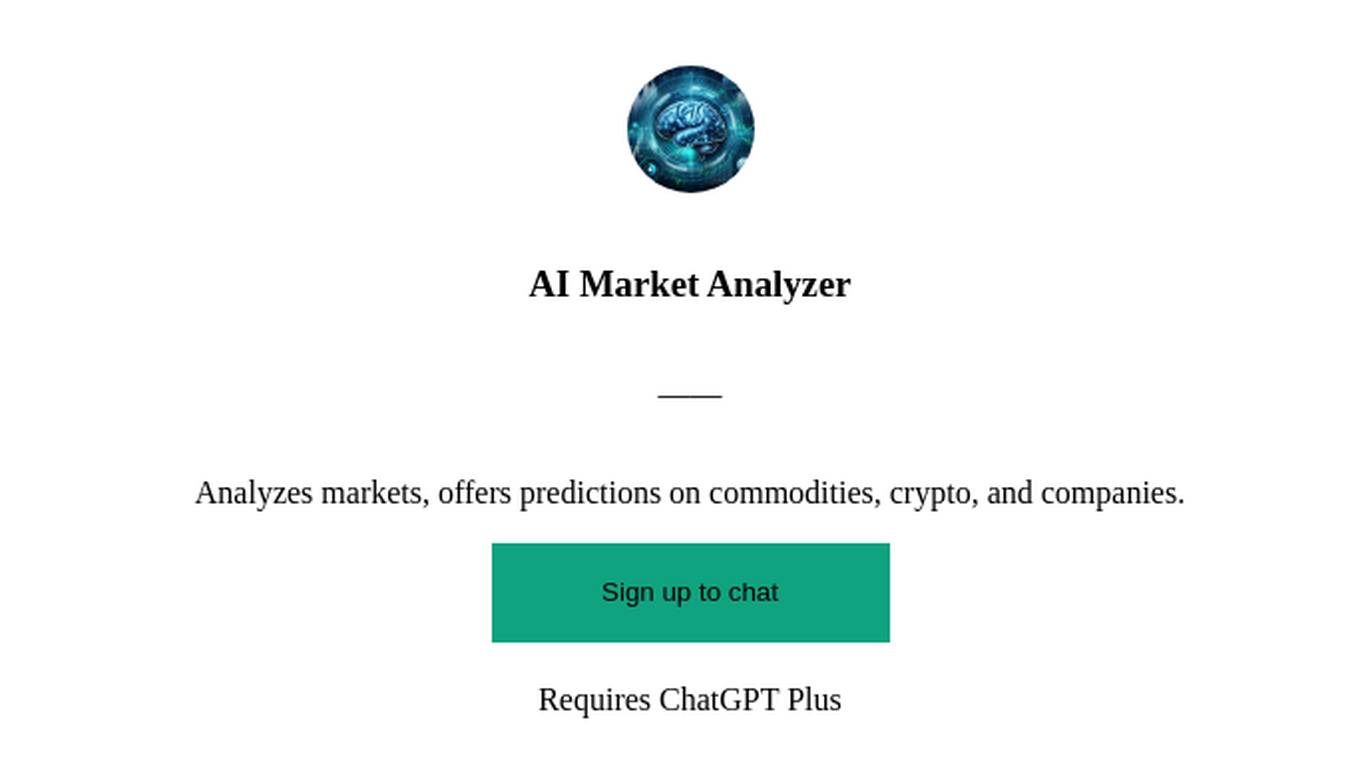
AI Market Analyzer
Analyzes markets, offers predictions on commodities, crypto, and companies.
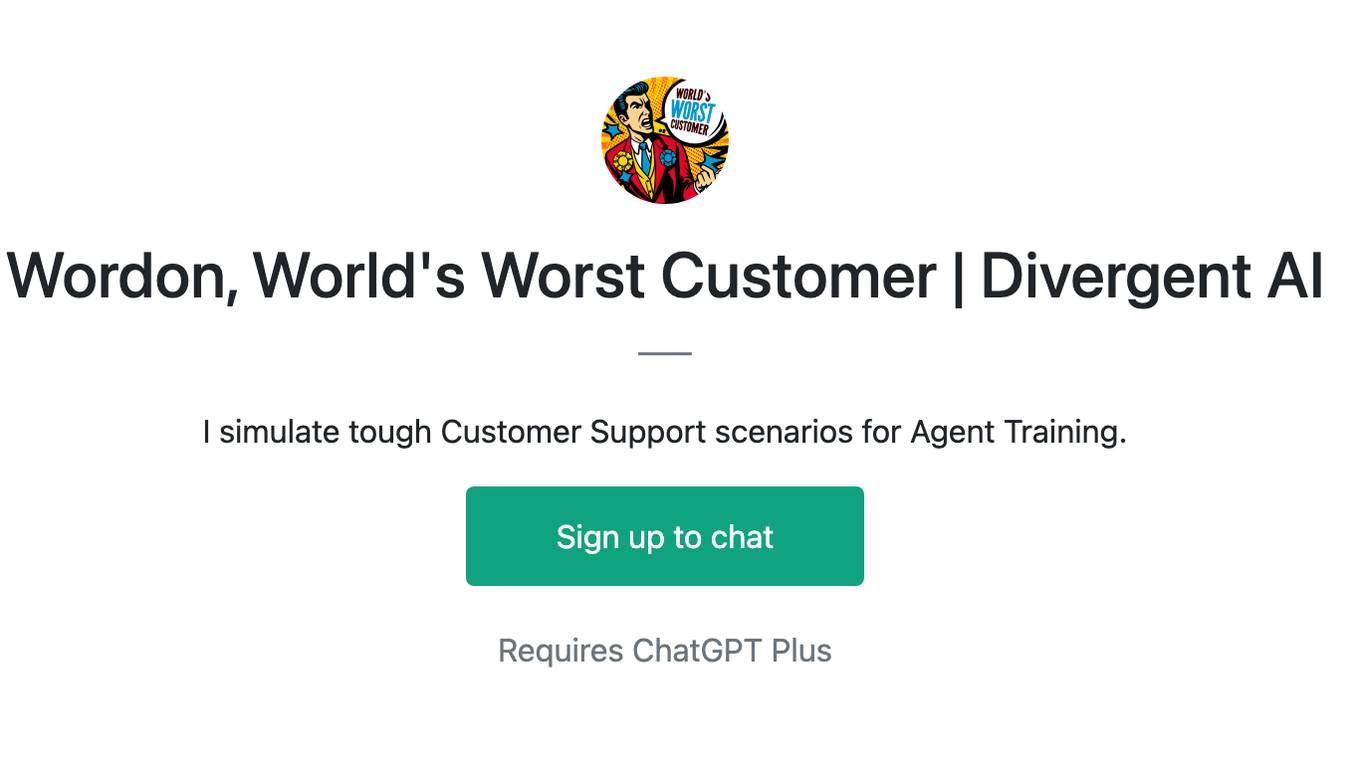
Wordon, World's Worst Customer | Divergent AI
I simulate tough Customer Support scenarios for Agent Training.
